
Columns & Features In This Issue Reimagining Infrastructure in the Classic City | Water Infrastructure in Winder Introducing GMA’s Embrace Civility Initiative | New Police Leadership Institute ADVOCACY. SERVICE. INNOVATION. March/April 2023




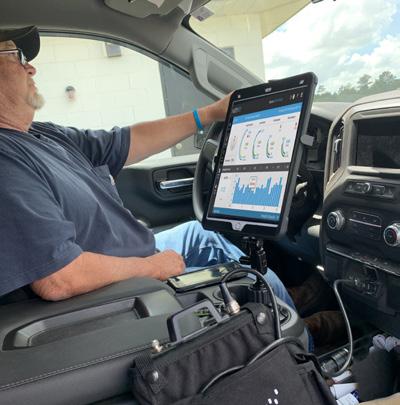


Georgia
highest quality products
technologies and the greatest people
deliver
and well into the
From offices across
(and the nation), CPS combines the
with the latest
to
results today
future.
UNMATCHED SERVICE IN THE GEORGIA PIPE, VALVES, AND FITTINGS INDUSTRY FOR OVER 60 YEARS HDPE Fittings & Fabrication Sewer & Water PVF Natural Gas Steel Fabrication Specialty Coatings Advanced Metering Custom Controls C onsolidatedPipe.com
FIND THE OFFICE NEAR YOU AND LEARN MORE ABOUT OUR PRODUCTS AND CAPABILITIES.
March/April 2023
Volume 1 • No. 23
Editorial and Advertising Offices: 201 Pryor Street, SW Atlanta, GA 30303
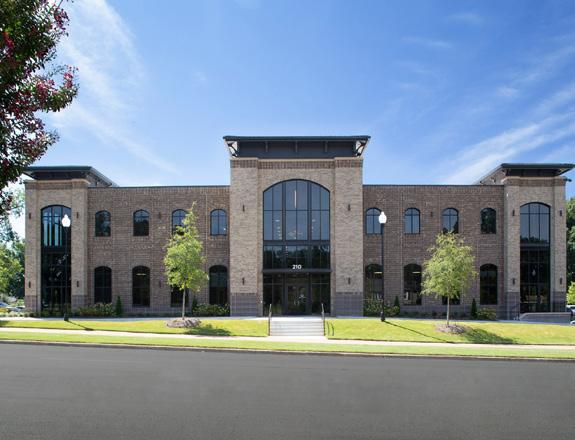
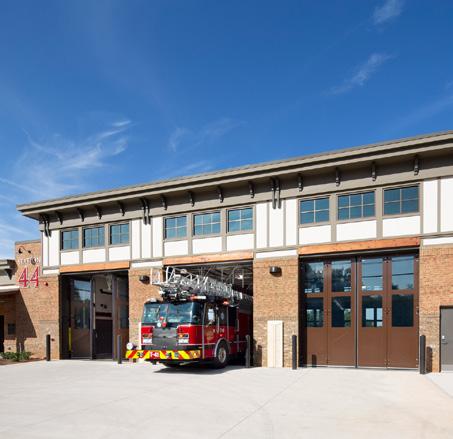
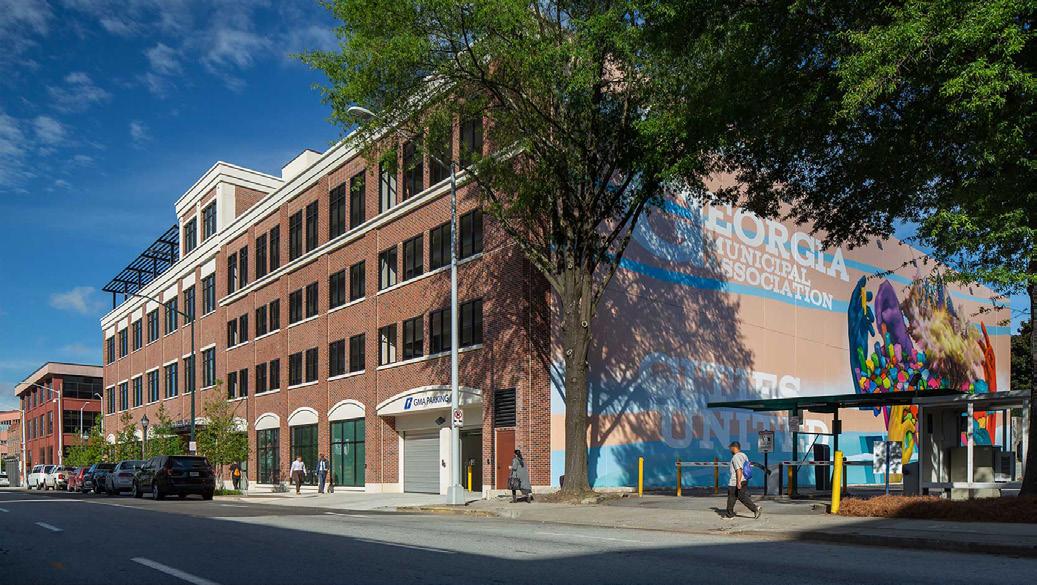
Phone: 404.688.0472
Fax: 678.686.6289
E-mail: gacities@gacities.com

CEO AND EXECUTIVE DIRECTOR
Larry Hanson
GRAPHIC ARTIST
Lindsay Podrid
ADVERTISING SALES

Lynne Norton
EDITORIAL BOARD
Emily Davenport
Alan Dickerson
Cindy Eidson
Dana Goodall
Latisha Gray
Gwin Hall
Aileen Harris
Chris Higdon
Kay Love
Chris Obenschain
Rusi Patel
Noah Roenitz
Kristian Serrano
Becky Taylor
Brian Wallace
GMA OFFICERS
President: Tifton Mayor Julie Smith
First Vice President: Perry Mayor Randall Walker
Second Vice President: Madison Mayor Fred Perriman
Third Vice President: College Park Mayor Bianca Motley Broom
Immediate Past President: Union City Mayor Vince Williams
Advertising rates upon request. Approximately 7,000 copies of this issue printed. Our policy is to distribute Georgia’s Cities to Mayors, City Councils, City Managers and other key City Officials. Georgia’s Cities reserves the right to decline advertising it deems unsuitable for its audience or market.
Subscription $36.00 per year. Single copies $4.00.
Georgia Municipal Association Headquarters
Fayetteville City Hall
A LOT STATE INTO OUR WE PUT INTO OUR TRUCKS WE PUT EVEN MORE TOGETHER WITH COCA-COLA UNITED, WE’RE WORKING TO CREATE A BETTER SHARED FUTURE BY OFFERING GREAT CAREERS AND SUPPORTING LOCAL BUSINESSES ACROSS OUR HOME STATE.
Milton Public Safety Complex





FEATURES REIMAGINING INFRASTRUCTURE IN THE CLASSIC CITY .................................... 5 CREATING CONNECTIONS TO CULTURES AND THE COMMUNITY IN JOHNS CREEK ....................................................................................... 10 WATER INFRASTRUCTURE IN WINDER .......................................................... 30 CITYSCAPES 8 + GMA President: Investing In Our Cities Human Infrastructure + GMA CEO and Executive Director: Collaboration is Key to Successful Infrastructure Projects CITY DESK ............................................................................................................14 + Maximizing Federal Funding for Infrastructure Projects + City Spotlight: Adairsville INSIDE GMA 16 + New Officers Elected for Georgia Municipal Clerks Association + Consultant Q&A: Pete Pyrzenski, Districts 1 & 2 + Newly Elected Officials Learn and Network During State-Mandated Training + Police Leaders To Train with Elected Officials as Part of New Program + 2023 Government Communicators Conference, August 7-9, 2023 + Griffin Gets Support from Liberty University Students During Their Spring Break + 2023 Georgia Cities Week “Lighting the Way” + Introducing GMA’s Embrace Civility Initiative + Spring District Meetings and Listening Sessions + Georgia City Solutions Hosts Inaugural Community Impact Awards Event + Creating Jobs With Purpose ADDITIONAL + Towns and Law: New Lawsuits Argue Municipal Utility Fees Constitute Illegal Tax .............................................................................................. 38 + Federal Focus: Georgia’s Cities Were Represented at the Nations Capitol in a Recent GMA Fly-In..... 40 Georgia’s Cities Celebrate ARPA Two Year Anniversary 42 + Downtown Developments: More than Murals Workshop Focuses on Creative Placemaking CITYLITES 45 + Georgia Gem: High Falls State Park + Fairs & Fests Table of Contents FOLLOW GMA ON SOCIAL MEDIA: Facebook & LinkedIn: Georgia Municipal Association | Twitter: @GaCities 4
Reimagining
Infrastructure in The Classic City
BY PAYTON JOHNSON
THIS REPUTATION, BOLSTERED BY RAPID economic development, has brought attention to the state’s glaring need for reinvestment in existing infrastructure. More populus areas, such as Athens-Clarke County, have experienced an increase in the daily use of infrastructure, without seeing an increase in operational dollars, leading to poor road and bridge conditions and persisting issues with safety, environmental sustainability, and community connectivity.
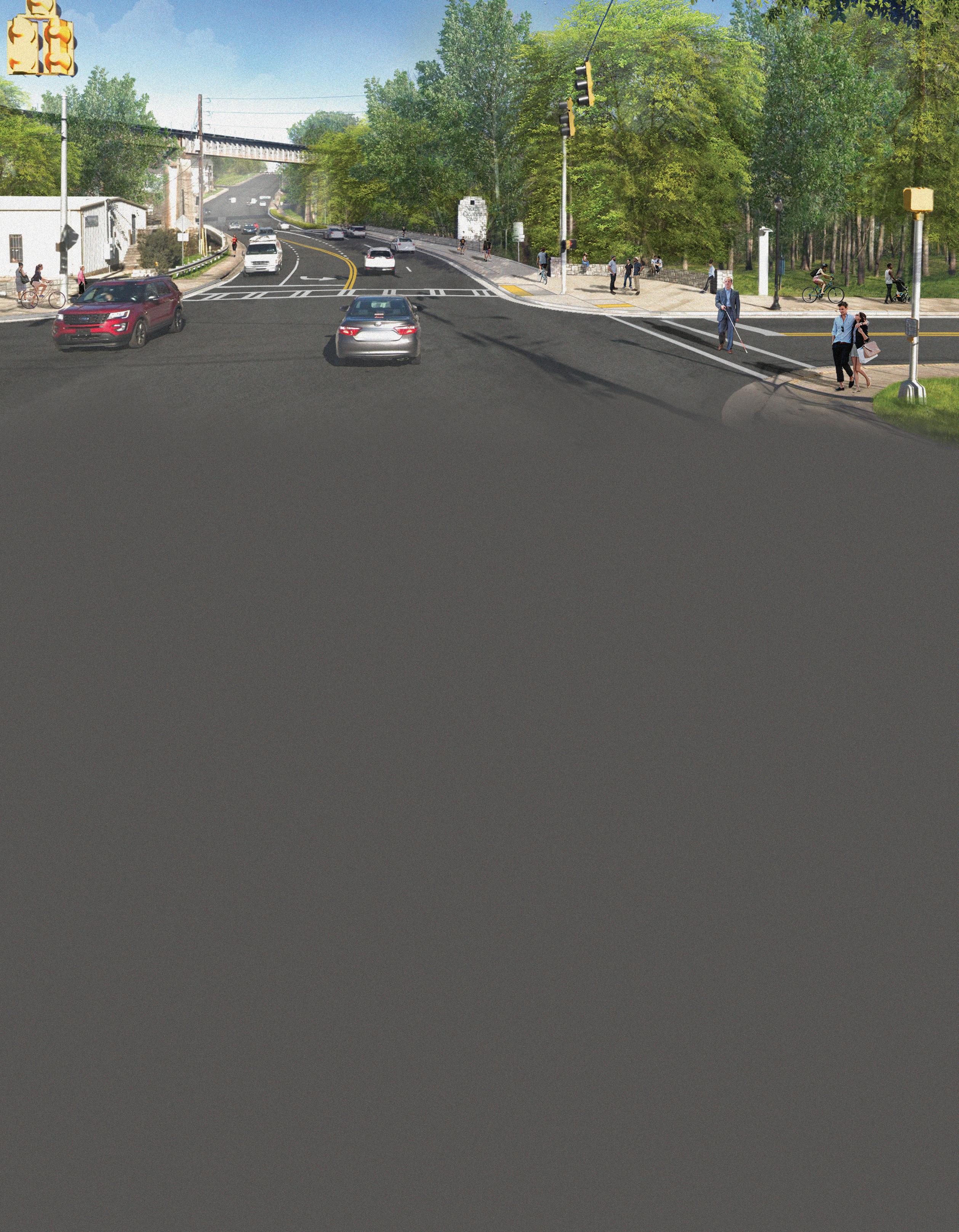
The Bipartisan Infrastructure Law (BIL), which is allocating roughly $4.2 billion to the State of Georgia in the form of multifaceted grant programs, both formulaic and competitive, is designed to address
these issues. Typically, formula grants are automatically awarded to eligible entities based on pre-determined criteria, such as per capita income levels, demographic composition, or other statistical measures within a given area. Competitive grants, such as the grants mentioned below, are awarded after a rigorous selection process. Usually, this process requires applicants to provide a compelling narrative about why they should receive funding from a given program, interweaving aspects like the context of their community, cost-benefit analyses, and strong evidence-based solutions in the form of a project proposal.
It is an enduring sentiment that Georgia is the “Top State for Doing Business,” citing the state’s dynamic collaboration with business partners to foster economic growth and opportunities.
March/April 2023 | gacities.com 5
Of the approximately 154 projects identified for funding through BIL, the following categories are highlighted as essential investments for Georgia’s infrastructure: roads and bridges, internet, water, public transit, clean transit and school buses, electric vehicle charging, clean energy and power, airports, ports and waterways, resilience, and legacy pollution cleanup. In a sweeping success, Athens-Clarke County has been awarded funding from multiple programs to address the multitude of infrastructure needs experienced by the Athens community.

Firstly, the Department of Transportation’s Safe Streets for All (SS4A) Grant Program has awarded the Athens-Clarke County Government roughly $1 million to develop a comprehensive safety action plan aptly named “Envision a Safe Athens.” This comprehensive infrastructure grant will be used for three main purposes, all working towards planning efforts, data collection, and supplemental infrastructure improvements. Planning efforts are aiming to develop plans to improve Athens’ current infrastructure. These plans include a Vision Zero Plan, a Safe Routes to Schools Plan, and a bicycle network Wayfinding Plan while also helping in the update of the Athens in Motion Plan. Another group of projects cover the need for more data about the influx of transportation usage, such as vehicle, bike, and pedestrian counting hardware, road asset data collection efforts, and a multi-modal traffic database subscription access. The last portion of funding is reserved for minor capital infrastructure improvements like a Safety and Traffic Calming Pilot Program and traffic signal camera improvements.
Another venture to rehabilitate local infrastructure was funded as a part of the Bridge Investment Program
(BIP) through the Department of Transportation, targeting six bridges in the Athens-Clarke County area. An estimated $772,000 was awarded to the county for a planning study, specifically working towards a plan to rehabilitate and replace the identified bridges and to investigate possible solutions for traffic congestion and inadequate pedestrian and bicycle infrastructure.

As part of the Rebuilding American Infrastructure with Sustainability and Equity (RAISE) Grant Program, Athens-Clarke County was highlighted as one of the counties receiving funding from the U.S. Department of Transportation, specifically for their “Reimagine North Avenue” project. The grant seeks to innovate the historic North Avenue with critical improvements, such as replacing the aging bridge over the North Oconee River, connecting the Greenway Corridor to the North Avenue Corridor, building out pedestrian infrastructure, and allowing for multimodal transportation usage along the roadway. This project would close the gap between lower-income communities that reside north of State Route 10 and the resources found in Downtown Athens. With roughly $25 million allocated toward the project, the Athens-Clarke County Government will aim to provide increased access to crucial services, such as employment, education, healthcare, public transit, and recreational areas.
The success that Athens-Clarke County has had with grant writing has been a result of strategizing and planning. Daniel Sizemore, bicycle-pedestrian safety coordinator, was instrumental in helping to secure these grants. He shared six tips for cities that want to improve their odds of receiving critical funding for infrastructure projects.
6
Six Grant Funding Tips for Cities
1. Do a “Walk Audit”
The best way to understand your community’s needs is by taking to the streets and investigating it in-person. For infrastructure, Daniel advises others to walk on the sidewalk of a busy street and take note of the existing structures. Did infrastructure grow in the most efficient way, or was it added as an after-thought? Does this pose as a serious threat to a person’s quality of life, whether that be physical or social? If people are suffering from failures in your community, demonstrate how you aim to rectify it with your proposed grant plans.
2. Elected Officials Need to Care
The best way to gain traction on your grant application is tangible support from elected local officials. When confronted with a dangerous bridge, Daniel invited a Commissioner of that region to walk the bridge alongside him. The Commissioner quickly noted how unsafe the conditions were and wrote a letter of support that encouraged further bipartisan support, both at the state and national level. He notes that a one-page brief on the specific issue is very helpful to get attention at the state and national level.
3. Look Around, Everywhere

While traveling, Daniel makes sure to stop and take a long, hard look at the existing infrastructure of a city. Whether it is Minneapolis, Washington, D.C., Mobile, or Raleigh; it’s important to take pictures and ask questions about how they have structured their city and what improvements they are making. Certain aspects may be different, such as features that respond to snow or heavier foot traffic, but they provide an interesting reference point when determining a path forward for your city’s solutions.
4. Create an Action Plan
Applying for planning grants, such as the Safe Streets For All (SS4A) Action Planning Grant, provides a great opportunity for local governments to create a foundational action plan to accompany the implementation aspect of a given grant program. By applying for this type of funding, Daniel will be able to stretch their local dollars and hire a consultant to help create a roadmap for potential projects and their prioritization as identified by the community and his own observations. The development of an action plan establishes clear priorities and helps create a cohesive narrative for his office to write a grant application.
5. Hire a Consultant
Consultants are the best resource for local governments to make sure they are “checking all of the boxes.” Processes like cost-benefit analysis are hard to piece together, but consultants can help simplify the process. Likewise, consultants have been exposed to numerous grant projects across multiple states and presidential administrations, so they can bring fresh ideas to your grant writing team.
6. But Don’t Check Out
Consultants, while very helpful, are not the end-all, be-all of grant writing. Combine their expertise with your own area of study: your community! Daniel encourages local governments to consistently review an application and provide context of your community when needed. If you aren’t selected for a grant, schedule a debrief with the grant selection committee to collect feedback and identify areas of improvement. Daniel stated that it took several times for the Reimagine North Avenue project to be selected, so it’s not uncommon to need improvements from each cycle of applications. Any small mistake could mean not obtaining the opportunity of a lifetime, so due diligence is worth the extra time and effort.
March/April 2023 | gacities.com 7
Investing In Our Cities’ Human Infrastructure
BY
PRESIDENT
ONE WAY IN WHICH WE DO that is focusing on our infrastructure needs. As we examine the transportation, water/sewer and broadband infrastructure challenges in this edition of Georgia’s Cities, I’d like to highlight another kind of infrastructure that’s just as important, and that’s the human infrastructure our cities need in order to provide the services that our residents rely on.
Did you know that 25% of the workforce in the U.S. is made up of Baby Boomers and that 10,000 of them are expected to hit retirement age daily from now until 2030? In 2020 alone, 29 million Boomers retired, and 75 million are expected to retire by 2030, exacerbating the current workforce gap experienced by employers across the country.
Baby Boomer retirements are just part of the workforce issue. Younger workers’ desire for hybrid work schedules, reskilling and upskilling needs of the current workforce, and the increasing demand for critical and creative thinking skills, all point to significant challenges for the future.

Are we as city leaders ready and able to address these challenges and supply the human infrastructure to meet the needs of our residents? Have we thought through how changing job expectations by employees will impact our ability to fill city positions?
These are daunting questions, but they are ones that cannot be overlooked as we look to the future of
our cities. Fortunately, GMA and Georgia City Solutions (GCS) are addressing these issues through the Jobs With Purpose: Municipal Workforce Development Initiative launched last year.
GCS is currently conducting a two-city pilot in Douglas and Brunswick, assisted by a small grant from the Volcker Alliance. The pilot is aimed at helping each city develop a workforce needs assessment followed by the development of a job recruitment strategy. This is essential work that will help these cities plan for the future and ensure that they have the talent and expertise they need to provide quality services to their residents.
The good news is that GCS has received additional funding, which will allow it to expand this initiative to an additional six cities later this spring and summer. This presents an incredible opportunity for cities to get ahead of the curve and start thinking about the human infrastructure they need to thrive in the years ahead.
As city officials, it is our responsibility to plan for the future, and that means investing in our human infrastructure. Our employees are the backbone of our cities, and we need to ensure that we have the right people in the right positions with the right training to provide quality services to our residents.
Let’s work together to build the kind of human infrastructure that our cities need to thrive and tackle the challenges and opportunities that lie ahead.
As city officials, one thing we’re always doing is looking for the future and building the capacity of our communities for future growth.
CITYSCAPES 8
JULIE SMITH, GMA
Collaboration is Key to Successful Infrastructure Projects
BY LARRY HANSON, CEO AND EXECUTIVE DIRECTOR
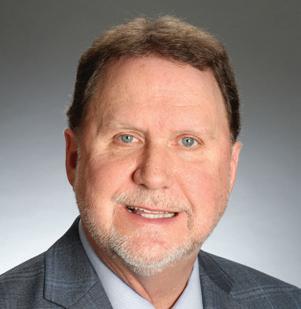
OF COURSE, THE INFRASTRUCture needs of cities across the state are broad and varied, and may include improvements to roads and bridges, upgrades to water and sewer systems, expansion of broadband and fiber, upgrades to electrical systems and more.
The Infrastructure Investment and Jobs Act (IIJA), also known as the Bipartisan Infrastructure Law (BIL), provides a unique opportunity for local governments to invest in much-needed infrastructure in their communities. The funding in Georgia is significant. Current projections include $8.9 billion for roads, $225 million for bridges, $100 million for broadband, $1.4 billion for public transportation, $619 million for airports, $8 million for the Port of Savannah, $135 million for resilient infrastructure (including EV charging stations) and additional funds for electric grid infrastructure projects. These funds will help address various local needs, but strong partnerships and extensive planning will be required to launch and complete these projects successfully.
One of the best examples of how infrastructure improvements can have a long-lasting impact can be found at the Port of Savannah. Recent and ongoing enhancements are expected to increase the port’s capacity by at least 60 percent. The significance of this expansion would be hard to overstate, as the Port of Savannah is already the largest single container port in North America, and it is the fastest growing and third-busiest container gateway in the U.S. The positive ramifications from this project will be felt not just throughout
Georgia, but across the country and the world, as the increased capacity will help cement the Port of Savannah as a prime global shipping hub. This example is possible because of investments from a variety of entities including the federal government, state government, private sector and local communities.
Long-term, collaborative partnerships between local, state and federal governments will be crucial to addressing local infrastructure needs statewide. Georgia’s cities are a significant contributor to the state’s economy, providing nearly 70% of jobs in Georgia and accounting for 91% of GDP in the state’s metropolitan statistical areas. While most of Georgia’s cities are small, they are significant. Three-quarters of Georgia’s cities have a population of 5,000 or less, and yet they serve over 512,000 Georgians. Many of these small communities rely on intergovernmental partnerships and resources for key services like broadband and electricity.
Although larger cities above 50,000 residents represent only 3.5% of Georgia cities, these cities are home to almost 2.3 million Georgians. Cities are inclusive and vibrant and offer opportunities and services for diverse groups of residents. This growth in population adds pressure to communities to plan for changes and development in areas such as housing and infrastructure.
During this unprecedented time, while Georgia has access to billions of dollars for infrastructure upgrades, it is vital that varied entities partner with local cities and make effective collaboration a top priority. By working together, Georgia’s cities can provide the support necessary for their growing communities and ensure the continued success of the state’s economy.
As many of Georgia’s cities continue to experience population growth, it is essential that municipalities provide adequate infrastructure to meet the needs of both their existing and future residents.
March/April 2023 | gacities.com 9
Leveraging Special Events Helps Create Connection to Cultures and Community
 BY EDITH DAMANN
BY EDITH DAMANN
The globalization of Georgia and its cities opens the door for new cultural event opportunities
10
RECENTLY RELEASED DATA FROM THE 2020 US Census confirms that Georgia, like much of America, is more diverse than ever.
Many municipalities in Georgia and around the country can relate to the diversification of their communities and the challenges local leaders face when seeking to connect with unique and multifaceted populations.
Cities and towns, both big and small, have strived to develop different ways to create engaging opportunities, programs, and events that draw in groups and community members who may not regularly interact with local government or attend traditional, established city events and meetings.
cultural activities over a specific time and place. Guests can engage in cultural activities simultaneously with others, resulting in meaningful, often life-defining, shared memories.
By celebrating as a community these events that are significant to various people in our city, we are bringing neighbors together to understand and appreciate each other. —
MAYOR JOHN BRADBERRY
With an eye toward embracing cultural diversity, Johns Creek City Council has worked hard over the last five years to ensure the city provides events and recreational opportunities that reflect the diversity of the Johns Creek community. The city is one of the most culturally diverse cities in the state and nation, with an international population that makes up approximately 51 percent of residents, with cultural backgrounds primarily from central and eastern Asia.
Events, festivals, and celebrations all provide guests and participants with an entertaining and safe way to explore new or different cultures through visual arts and crafts, dance, folk or traditional arts, music, and food. Community events offer an ideal platform to learn something new by condensing our exposure to
In 2018, the Council debuted the Johns Creek International Festival, highlighting multiple cultures from all over the world and drawing crowds from metro Atlanta with a full day of food and performance. Now in its fifth year, the festival welcomes more than 16,000 people annually.
March/April 2023 | gacities.com 11




12
Determined not to stop there, the city added a Diwali Festival, Lunar New Year Celebration and is looking to further expand its cultural event line-up over the next few years.
“The Johns Creek Diwali Festival, held in October 2022, was the first official city Diwali celebration in Georgia,” said Johns Creek Mayor John Bradberry. “What made this celebration such a success was that it was driven by our community and our resident volunteers to guide the planning of the event.”
To ensure authenticity and adherence to tradition, the city created an event committee with members from the Indian community to aid in all aspects of event development, from performances to food to vendors and parking. The Diwali festival featured a wide variety of Indian food, classical Kathak and Bollywood-style performances, a traditional Rangoli display, retail, and more.
“With more than 60 vendors, four hours of performances, fireworks, and an estimated 12,000 attendees, this was a huge success for our community,” added Mayor Bradberry.
A similar formula was used for the Lunar New Year Celebration. The city’s inaugural Lunar New Year

Celebration was held in January 2023. Hosted at Johns Creek’s Newtown Park, it showcased traditional Asian food, Lion Dancers, and martial arts demonstrations. Thousands gathered to celebrate this first-time event and welcome in the Year of the Rabbit – or the Year of the Cat, depending on which cultural traditions are followed.
“By celebrating as a community these events that are significant to various people in our city, we are bringing neighbors together to understand and appreciate each other,” said Mayor Bradberry.
Culturally focused events such as these provide cities with fun and engaging opportunities to blend important cultural traditions, foods, and stories into truly unique community experiences.
One of the keys to success is collaboration with residents and community members. Passionate individuals from the community helped the city not only draw on authentic cultural customs and traditions but also encourage engagement and civic participation for key demographic groups who may be less inclined to attend a public meeting or town hall event but are highly interested in celebratory experiences.
March/April 2023 | gacities.com 13
Maximizing Federal Funding for Infrastructure Projects
The federal government, state, counties, and cities in Georgia are all important partners in rebuilding Georgia’s infrastructure.
CITIES CAN SEEK OUT FEDERAL INFRASTRUCTURE
funds for transportation, water, broadband, energy, and much more through different programs. To help cities access these grants, the Georgia Municipal Association (GMA) has compiled resources on these grants and grants in general. GMA’s “The Four Seasons of Grants” is a continually updated, web-based resource designed to help Georgia’s local governments search and prepare for upcoming grant opportunities. The tool can help cities find a variety of grant programs, review application cycles, and determine any local match requirements.
Accessing Federal Funding
Federal funding and grants can often seem daunting. Before embarking on major infrastructure projects, cities should create a plan that includes strategies to obtain adequate funding. Here are the top ways cities should maximize federal dollars in their infrastructure planning:
Infrastructure Investment and Jobs Act (IIJA)
The Infrastructure Investment and Jobs Act (IIJA), also known as the Bipartisan Infrastructure Law (BIL), was signed into law in November 2021. This legislation is responsive to the call from local leaders across the country to bring critically needed long-term investments for infrastructure to our communities. Georgia will receive more than $10 billion for a wide range of projects. Cities will be able to tap into these funds to address a variety of local needs. These programs will flow through both states and federal agencies.
Inflation Reduction Act (IRA)
The Inflation Reduction Act (IRA) provides $369 billion in tax credits and additional funding for zero-emissions vehicles and technologies, building efficiency and resilience, home energy efficiency and appliance electrification rebates, and reducing air pollution and greenhouse gas emissions overall. For the first time, local governments are eligible to take advantage of clean energy tax credits through a direct payment option.
Annual Congressional Appropriations Congress annually prepares a budget with appropriations to fund specific federal programs. With the support of their local congressional office, cities may be able to obtain special appropriation. The National League of Cities (NLC) tracks the appropriations process for cities.
American Rescue Plan’s State and Local Fiscal Relief Funds (SLFRF)
Communities have an opportunity to use their SLFRF grants from Congress for essential infrastructure, including water and broadband demands, but also for newly eligible infrastructure uses, including transportation.
GMA encourages cities to plan for upgrades and projects that will enhance their infrastructure. There is currently unprecedented federal funding available for cities to obtain support for major infrastructure projects. Reach out to GMA staff with any questions and for support.
CITY DESK
14
REAL FINANCIAL SOLUTIONS FOR REAL PROGRESS.
As your communities keep growing, Crews & Associates is here to help finance the projects that keep them going. Water systems, road improvements, parks, community centers, aquatic facilities and more – we’re ready to help your vision for your county come to life. Contact us today and see what Crews can do for you.
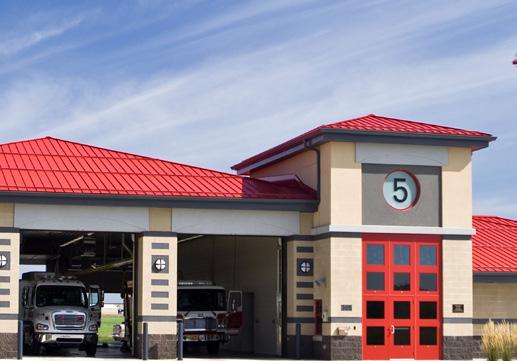


POPULATION: 4,878
MAYOR: Kenneth Carson
GMA DISTRICT: 1

City Spotlight City Spotlight Adairsville

History: Located 65 miles north of Atlanta and 65 miles south of Chattanooga, TN, and nestled within the Oothcalooga Valley sits the city of Adairsville located in Bartow County. Described by tourists as a city that will remind you of a town painted by Norman Rockwell, the city is a must-visit destination for those with an interest in Civil War history. The city was named in honor of Chief John Adair, a Scottish settler of the area who married a Cherokee woman before the removal of the Cherokee in 1838.
William Watts, one of the town’s first developers had a railroad business interest in the town. He deeded the land to the railroad and surveyed business lots including hotels, mills, and blacksmith shops around the town. The success of Watt’s plan brought growth and development to the city, which the city later earned the nickname the “Granary of the State,” when the city was incorporated in 1854.
The Civil War brought many historical events to the city, including the Great Locomotive Chase in 1862. The Chase is to date the war’s best-known escapade and was later made famous by a Walt Disney movie that bears the same name. Each fall, the Great Locomotive Chase Festival, a three-day celebration is held in remembrance of the event. Today, many of the pre-Civil War homes and churches still exist in the city’s historic district – including antique shops and boutiques.
Fun Fact: Adairsville was the first Georgia city to be listed in its entirety on the National Register of Historic Places.

crewsfs.com
Member FINRA & SIPC
King • 404.967.2543 • tking@crewsfs.com
Tony
The full registration fee for (If purchased individually, The fee includes:
• Friday afternoon training
• Saturday training session
• GMA Exhibit Hall Reception
• GMA General Session on
• Sunday Luncheon Session
• Sunday training course
• Monday morning training
• Monday GMA and GMCA
SCHEDULE OF EVENTS
Friday, June 26 1:00 pm – 4:00 pm

New Officers Elected for Georgia Municipal Clerks Association
At the annual meeting of the Georgia Municipal Clerks Association (GMCA) held on February 6 at Jekyll Island during the Georgia Clerks Education Institute offered by the Carl Vinson Institute of Government, new officers and board members were installed for 2023-2024.

INSIDE GMA
3:30
7:15
Worship 8:00
9:00
Breakfast 9:15 am
10:45
GMA 11:00
12:30 pm Business 1:00 pm
4:00 pm Training
8:30 am
11:30 am Training 12:00 pm
1:45 pm GMA 6:30 pm
10:00 pm GMA (Separate 16
Training Saturday, June 27 8:15 am – 3:15 pm Training
pm – 5:30 pm Exhibit Sunday, June 28
am – 8:00 am
am –
am
–
am
am –
–
Monday, June 29
–
–
–
President: Regina Russell, City of Acworth
Vice-President: Deborah Walker-Reed, City of St. Marys
Treasurer: Vernice Thompson, City of Hazlehurst
Secretary: Sharon Nelson, City of Calhoun
Officers were sworn in by Immediate Past President Vicki Wainwright, City of Butler.
Current GMCA Board Members:
District 1: Melissa Chosewood, City of Hiram
District 2: Marilyn Chastain, City of Helen
District 3: Shandrella Jewett, City of Union City
District 4: Richard McCoy, City of West Point
District 5: Sandra Haggard, City of Commerce
District 6: Telina Allred, City of Byron
District 7: Kim Reddick, City of Girard
District 8: Margaret Shelley, City of Vienna
District 9: Angie Conner, City of Metter
District 10: Melinda Crook, City of Blakely
District 11: Cristina Evans, City of Fitzgerald
District 12: Naomi Atkinson, City of Brunswick
New GMCA officers were installed during the 2023 Clerks Institute.
Pictured L-R Vicki Wainwright, City of Butler; Sharon Nelson, City of Calhoun; Vernice Thompson, City of Hazlehurst; Deborah Walker-Reed, City of St. Marys; and Regina Russell, City of Acworth.

1 2 3 4 8 5 7 6 9 10 11 12
March/April 2023 | gacities.com 17
Consultant Q&A: Pete Pyrzenski, Districts 1 & 2

EACH CONSULTANT HAS A UNIQUE background in municipal government and a special area (or areas) of expertise. In this issue of Georgia’s Cities, we’ll learn a little more about Pete Pyrzenski, who serves districts 1 and 2.
What did you do before you became a member services consultant at GMA? I was a City Manager for the cities of Tifton, Commerce, and Waycross for a combined service of over 15 years. Prior to being a city manager, I began my public service career at the City of Valdosta as the Public Works Director and did so for eight years. Before working in local government, I was employed in the private sector in the solid waste industry. Additionally, I am a proud veteran of the U.S. Navy and U.S. Army.
How does your background help you serve cities in your district? My diverse background in local government has prepared me to assist cities in many different facets and levels. From Public Works/Utility Operations to Organizational Development, I can share key lessons learned as well as identify best practices for the betterment of any organization.

What are some common infrastructure issues that you can assist cities with? The common infrastructure issues I may be able to assist cities with range from master planning and engineering to prioritizing work plans. Because this area could be somewhat complex and very costly, it is important that a city identify their needs, the location of its worst and oldest infrastructure, and develop a plan to properly and proactively address those needs. At the same time, it is just as important to implement a utility expansion plan for growth or development. Obviously, costs for replacement or repairs may be a major concern for many cities, and developing a plan may be difficult for many reasons. Working with cities to come up with creative solutions or alternatives is something I could assist with by working with staff and identifying possible joint resources to address the situation.
What would you recommend a city official keep in mind when making infrastructure upgrades? In dealing with infrastructure, I recommend that city officials be diligent but realistic at the same time. Developing a well-defined plan is great, and it provides a lot of detail to review, but, if the plan is too comprehensive or too costly, it is a good idea to scale down the work and focus on the most pressing and immediate needs
GMA has a team of member services consultants dedicated to helping Georgia’s cities solve problems and seize opportunities.
18
first. If this is the case, it is recommended to work with the current staff and look at the situation constructively. City officials should also review with their staff the available capital funds, SPLOST or ARPA funding that may be directed for infrastructure improvements. With any infrastructure improvement, city officials must ensure they specially understand what improvements will be made, where the construction will take place, and be prepared for other issues the improvements may cause in other relatable areas. This could apply to water, sewer and or stormwater as it may put pressure on other older infrastructure in the vicinity so this must be part of overall plan. The more the public is educated the better.




Do you teach any of GMA’s classes or retreats? Which ones? Yes, I have been teaching Customer Service and Sexual Harassment training classes for various cities and have been observing retreats and other developmental courses provided to elected officials and staff members in the last five months. I enjoy planning retreats, organizational development, and creating a learning experience for our members.






What is your favorite part of being a member services consultant. Having been a city manager and department head, I always counted on GMA for resources or to provide their expertise in various areas. Now, as a Member Services Consultant, I am now able to see the other side of GMA’s resourcefulness. It is fulfilling to utilize my experience and acquired knowledge to help cities navigate through the issue they may be having or to be a sounding board to assist them in being a better organization.

Visit us at www.blackmountainsoftware.com For more information and to schedule a FREE online demo, call 800.353.8829. Applications include: • Accounting • Utility Billing • Cash Receipting • Accounts Receivable • Payroll EASY-TO-USE. EFFICIENT. TIME-SAVING. Sof tware solutions for Georgia cities and special districts just like yours. • NEW Summit Service Orders • NEW Summit Code Enforcement • and many more! FUND ACCOUNTING | UTILITY BILLING
Newly Elected Officials Learn and Network During State-Mandated Training
More than 120 newly elected officials convened in March at the University of Georgia’s Center for Continuing Education Conference Center for the annual Newly Elected Officials Institute, an intense, statemandated two-and-a-half day training, presented by the University of Georgia’s Carl Vinson Institute of Government (CVIOG) and GMA.
CVIOG FACULTY, GMA STAFF AND OTHER partners conducted sessions on legal foundations, ethics, meeting management, financial resources, diversity, equity and inclusion + belonging, transportation and public works, land use, planning and zoning, personnel, and financial policies. Participants also heard from veteran city officials on meeting management and building collaborative relationships.
“My advice to newly elected officials is, ‘be who you are,’” said Madison Mayor Fred Perriman, GMA’s second vice president. “Don’t make a promise you can’t keep. Serve your city and your constituents and not yourself.”
Adairsville Mayor Kenneth Carson encouraged the newly elected officials to choose unity, reverence and decorum. “When you disagree, be pleasant, amicable, and with a mature mindset,” he said. “Without a doubt, unity is the fortification of the council’s genuine strength.”
In her remarks, Suwanee Mayor Pro Tem Linnea Miller shared the city’s code of conduct—
• We will listen to each other objectively and openly.
• We will be informed prior to our debate.
• We will disagree with passion and respect.
• We will stay focused on the overall and longrange good of the city.
• We will take our action, lay aside our differences, and move forward.
• We will support the actions of the council even though we may continue to disagree.
• We will seek to build a culture of trust.
Georgia Cities asked a few attendees why they ran for office, what they learned from the conference and something that will stick with them from their time in the training.

TAMMY HOWE, COUNCILMEMBER, CITY OF WARM SPRINGS
Why did you run for office? I ran for office for my father. He ran for county commission, and he did not win; I feel he passed me the mantel.
What did you learn? I learned so much. My vision is to bring all the knowledge I gain back to my community so we can be effective.
What stuck out from NEO? It is important to conduct oneself in a business manner while in elected office because you are representing your community.
20
GRANT TRIPLETT, COUNCILMEMBER, CITY OF SPRINGFIELD
Why did you run for office? I have a family and a one-year-old child. I want to be a part of growing the community.
What did you learn? After talking to a lot of people here and going to the sessions—I realized that cities large and small all have similar issues.
What stuck out from NEO? I am thankful that GMA and CVIOG are here to assist us. Having GMA’s and CVIOG’s insight and expertise makes me feel less isolated. I know there are people I can relate to and talk to that can help us.
What did you learn? I really enjoyed [GMA’s General Counsel] Rusi Patel’s presentation about the legal foundations of cities and towns. I didn’t know much about that and the financial management stuff.
What stuck out from NEO? The people—meeting new people and making connections across the state. I have made a lot of new friends.
ERICA MILES, COUNCILMEMBER, CITY OF WALNUT GROVE

Why did you run for office? I have three children in the school district. I moved to the area in 2020 and I realized they were planning a downtown area, and I wanted to be a part of the planning for the future downtown for the kids in the community, mostly.
QUAY BODDIE, COUNCILMEMBER, CITY OF LAGRANGE

Why did you run for office? I ran because there are a lot of things going on in my community. I know I am a dedicated, loving, upbeat and encouraging guy; I wanted to make sure I spread that out within my community and help make the community better.
What did you learn and what stuck out from NEO? I learned to be more open to bringing innovative ideas to our community, and not to be afraid to stand up and speak up on certain issues.
What did you learn? So much. I am going to take back information regarding grants. I am more educated on financial policies, and I am going to review those documents more closely to make sure our city is operating correctly.
What stuck out from NEO? The session on ethics. We are all a team, and we need to work together and keep the main thing, the main thing.
CAIN WILLIAMSON, COUNCILMEMBER, TOWN OF NEWBORN


Why did you run for office? After I moved to Newborn about two years ago, I felt at home very quickly and I wanted to contribute to the town.
The next Newly Elected Officials Institutes are scheduled for:
Athens -- February 28 -March 1, 2024
Tifton -- March 20-22, 2024
Registration for the 2024 Newly Elected Officials Institutes will open in the fall of 2023.
March/April 2023 | gacities.com 21
Police Leaders To Train with Elected Officials as Part of New Program
BY AILEEN HARRIS
THE LEADERS WERE PART OF THE INAUGURAL cohort of the Police Leadership Institute—a joint program between the Georgia Association of Chiefs of Police (GACP), GMA and the Harold F. Holtz Municipal Training Institute (operated in partnership between GMA and the University of Georgia’s Carl Vinson Institute of Government) that launched in January. Police Leadership Institute participants must be current police chiefs or a command staff (captain or above), employed with a Georgia municipal, county or consolidated government, police department or a state agency law enforcement CEO, have a recommendation letter from the mayor or city manager and submit a personal statement, among other requirements.
The Institute was the brainchild of GMA CEO and Executive Director Larry Hanson and Peachtree City Chief of Police Janet Moon, who was serving as GACP President when she and Hanson discussed how elected officials and police leaders rarely interact.
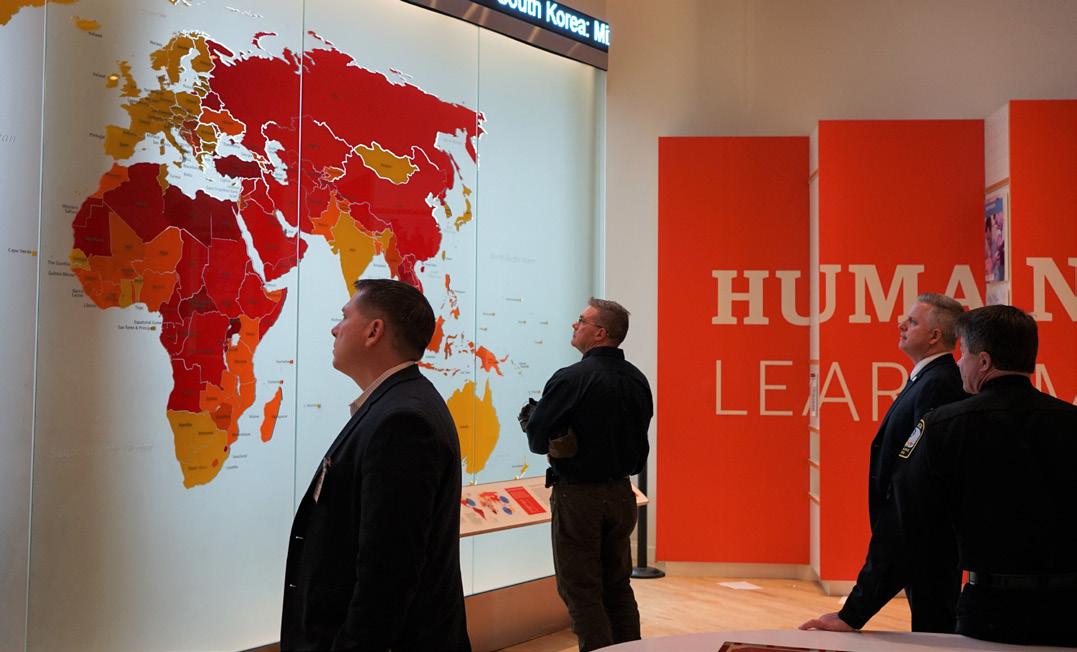
With the now retired internationally renowned LaGrange Police Chief Louis Dekmar leading the charge, GMA and GACP spent several months developing the pilot program. During the two-year pilot, participants will attend police-specific leadership classes and select

municipal training institute classes. To graduate from the program, participants must complete at least 72 hours of coursework and complete an eight-hour capstone project unique to their community.
“It is important we make a commitment to provide leadership opportunities for our public safety professionals,” Hanson said. “I see this leadership program as a win for our public safety professionals, a win for our elected officials, and a win for communities across the state.”
“We hope this program helps encourage law enforcement leaders to get a better idea of the challenges they are facing as well as interact with local municipal officials,” said Georgia Association of Chiefs of Police Executive Director Butch Ayers. “For such a long time, law enforcement officials have training in their silo and local officials in their silo. We would like to bring them together to get each other’s perspectives and have both be able to provide better service to the residents.”
At the launch in January, LaGrange Police Lt. Mark Cavender taught a History of Policing course, which included discussions on police involvement during the Civil Rights era and past civil unrest, the nobility of policing, and how civil unrest affects the policing profession.
Eight police leaders gathered recently at GMA to network and begin a two-year journey toward enhancing their leadership skills.
Following the classroom instruction, participants visited the National Center for Civil and Human Rights in downtown Atlanta, which features immersive exhibits on the history of the Civil Rights Movement in the U.S. and the current struggle for human rights from around the world.
“We need to know our past,” Cavender explained. “If we know our past, embrace our past and learn from our past, maybe we can prevent repeating our past. It is also important to teach and show both the command level staff as well entry-level members of police agencies how issues from the Civil Rights era and the past impact the relationships we have with communities today.”
A GACP-GMA selection committee reviewed and approved the current participants: Captain Dale Strickland of the LaGrange Police Department, Chief Joel Richards of the Carrollton Police Department, Assistant Chief Mike Myers of the Peachtree City Police Department, Chief John Robison of the Alpharetta Police Department, Chief Frank Trammer of the Stockbridge Police Department, Chief Jeff Hadley of the Chatham County Police Department and Pardons and Parole Executive Director Chris Barnett.
Assistant Chief Myers said he wanted to participate in the program for the opportunity to collaborate with leaders from both law enforcement and other sections of municipal government from around the state.
“I want to help identify areas for improvement and ways we can work better together,” he said. “I look forward to the conversation and knowledge and best practices from the other people in the class.”

Applications for the next Police Leadership Institute cohort will begin to be accepted in fall 2023.

2023 Government Communicators Conference, August 7-9, 2023
REGISTRATION IS NOW OPEN FOR THE 2023 Georgia Government Communicators Conference, presented by the Georgia Municipal Association and ACCG. Open to city, county and state government

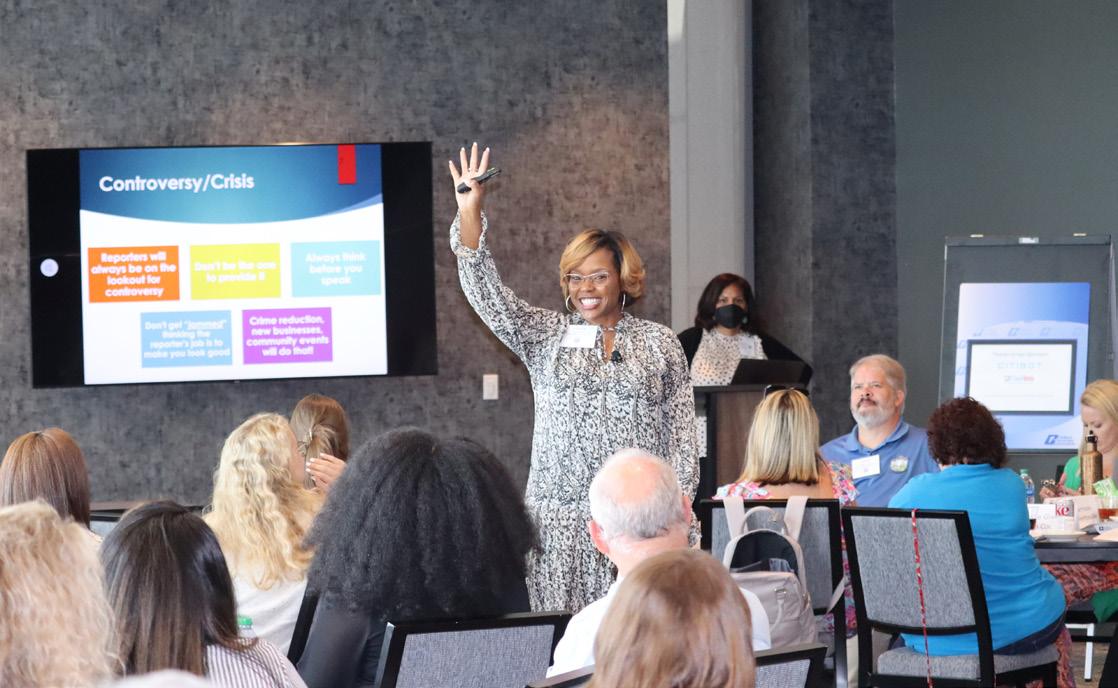
communicators, the 8th annual conference will feature informative sessions and networking opportunities. Visit the event page on GMA’s website for registration information.
Griffin Gets Support from Liberty University Students During Their Spring Break
A TEAM OF 10 LIBERTY UNIVERSITY STUDENTS used their spring break to team up with Samaritan’s Purse—bringing critical relief to Georgia families following catastrophic tornado damage that damaged over 2,000 homes.
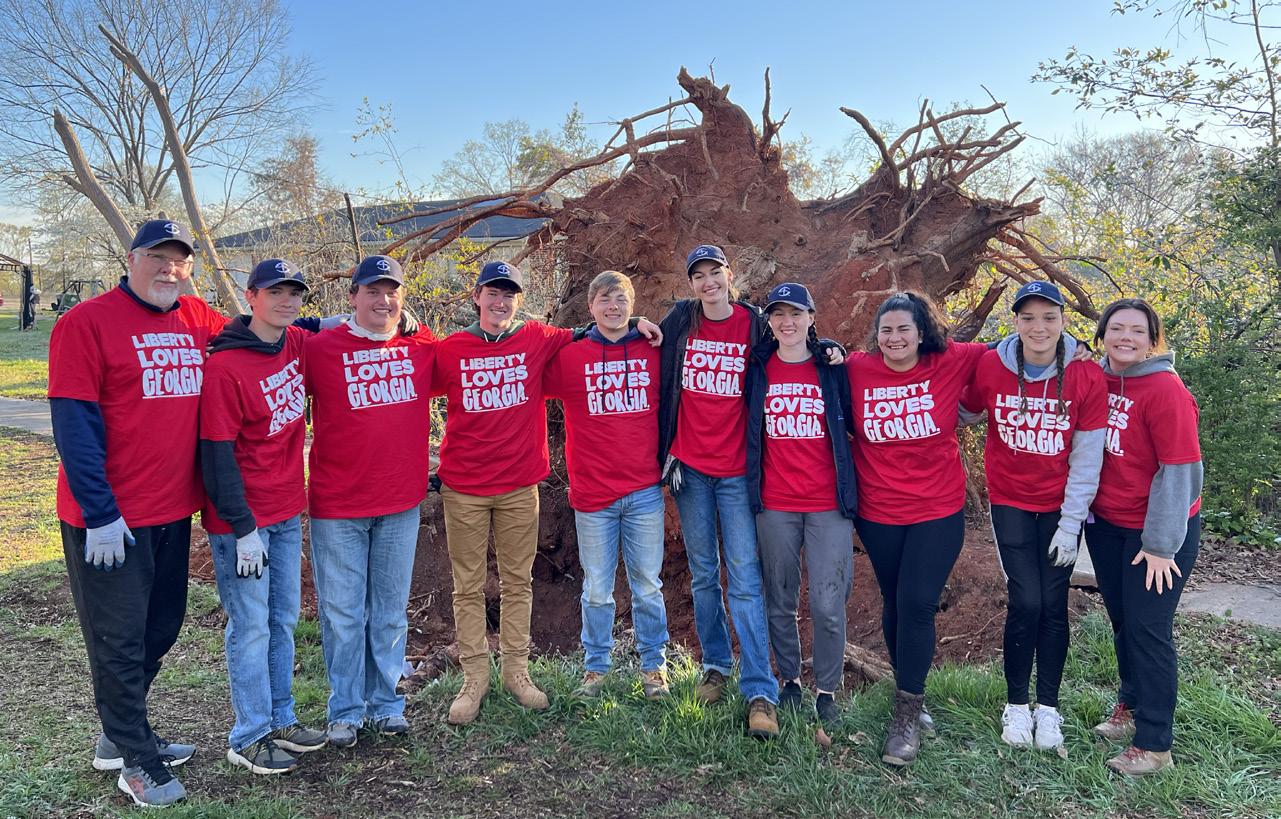
Students converged on the City of Griffin to help clear debris, tarp roofs, and salvage any personal belongings that may have survived the storm. Students said they wanted to remind hurting families they were not alone.

2023 GEORGIA CITIES WEEK “LIGHTING THE WAY”
Cities across Georgia will celebrate Georgia Cities Week from April 23-29, 2023.
It’s the best time of the year when cities across the state showcase their cities during the weeklong Georgia Cities Week celebration.
Georgia Cities Week will run April 23 through 29 and will give cities the opportunity to:
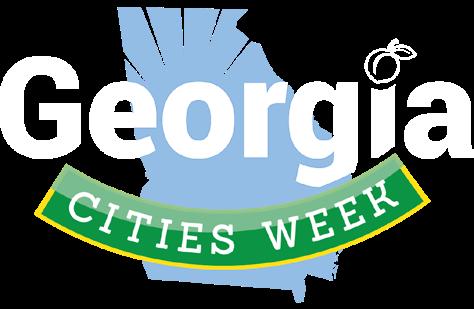
• Share information about the valuable services cities provide to residents, including an inside look into city operations and how cities positively impact their quality of life

• Highlight successful community projects and infrastructure enhancements
• Connect residents with one another
• Build or improve working relationships with state leaders and legislators
Now in its 24th year, Georgia Cities Week is also an opportunity to celebrate community achievements and recognize volunteers and city employees.
Every year, hundreds of Georgia cities find new innovative ways to celebrate their work, including social media posts, volunteer opportunities, and special events.
Resource kits for Georgia Cities Week have already been mailed, but if your city wants to join in on the festivities, it’s not too late. The resource kit is available to download at www.gacities.com. Any questions about Georgia Cities Week can be directed to Dana Goodall (dgoodall@gacities.com).
MORE
FOR
PUBLIC SERVICE TO BE EFFECTIVE,
THERE must be an atmosphere of respect and tolerance and a commitment to a healthy public exchange of diverse ideas and viewpoints.
GMA created the Embrace Civility program to support Georgia’s cities in building stronger and more prosperous communities by advocating for civil engagement, respecting others and their viewpoints, and finding solutions for the betterment of all.
WHAT IS CIVILITY?
Civility is more than just politeness. It is about disagreeing without disrespect, seeking common ground as a starting point for dialogue about differences, listening past one’s preconceptions and teaching others to do the same. Civility is the hard work of staying present even with those with whom we have deep-rooted and fierce disagreement.*
WHY CIVILITY MATTERS FOR CITIES
• Civil behavior and speech are critically important to a healthy, functional and respectful society.
• A 2019 survey revealed that 93 percent of Americans believe that incivility is a problem, with 68 percent identifying incivility as a major problem.**
• Cities need a plan to counteract the growing polarization and challenges caused by incivility.
CIVILITY PLEDGE
The way we govern ourselves is often as important as the positions we take. Our collective decisions will be better when differing views have had the opportunity to be fully vetted and considered. All people have the right to be treated with respect, courtesy and openness. We value all input. We commit to conduct ourselves at all times with civility and courtesy to each other.
LEARN
ABOUT GMA’S NEW EMBRACE CIVILITY INITIATIVE AND PLEDGE TO BECOME A CITY OF CIVILITY TODAY.
*The Institute for Civility in Government ** Weber Shandwick’s annual poll, Civility in America 2019
26
Civil behavior and speech are critically important to a healthy, functional, and respectful society.
9 PILLARS OF CIVILITY
Be considerate of others’ opinions. It’s ok to agree to disagree.
Manage your emotions. Get curious instead of furious.
A silent voice is not always a weak voice. Sometimes it’s ok not to respond.
Be Kind! Make your point about the issue, not the person.
Actively listen, to learn how to Engage respectfully!
Think about the impact of your actions and not the intent.
Ask questions to learn. Answer questions with respect.
Remember the acronym QTIP (Quit Taking It Personal).
Have empathy! Just because you have not experienced it, does not mean it does not exist.
CITY OF CIVILITY
From the Town of Good Hope to the City of Savannah, towns and cities of all sizes are taking the pledge and participating in GMA’s new Embrace Civility program. Freddie D. Broome, GMA Director of Equity and Inclusion, said, “The embrace civility program was created to encourage our cities to be more civil towards each other and all stakeholders to counteract the growing polarization fostering incivility.”
Over 30 municipalities have been designated as a “City of Civility” by the Georgia Municipal Association
(GMA) and Georgia City Solutions, a GMA nonprofit organization.
Cities that have received this recognition have demonstrated their commitment to civility by adopting a civility resolution and vowing to a civility pledge, recognizing that respect and courtesy contribute to effective governance. They have taken this action because they understand how crucial respect and civility are to good governance.
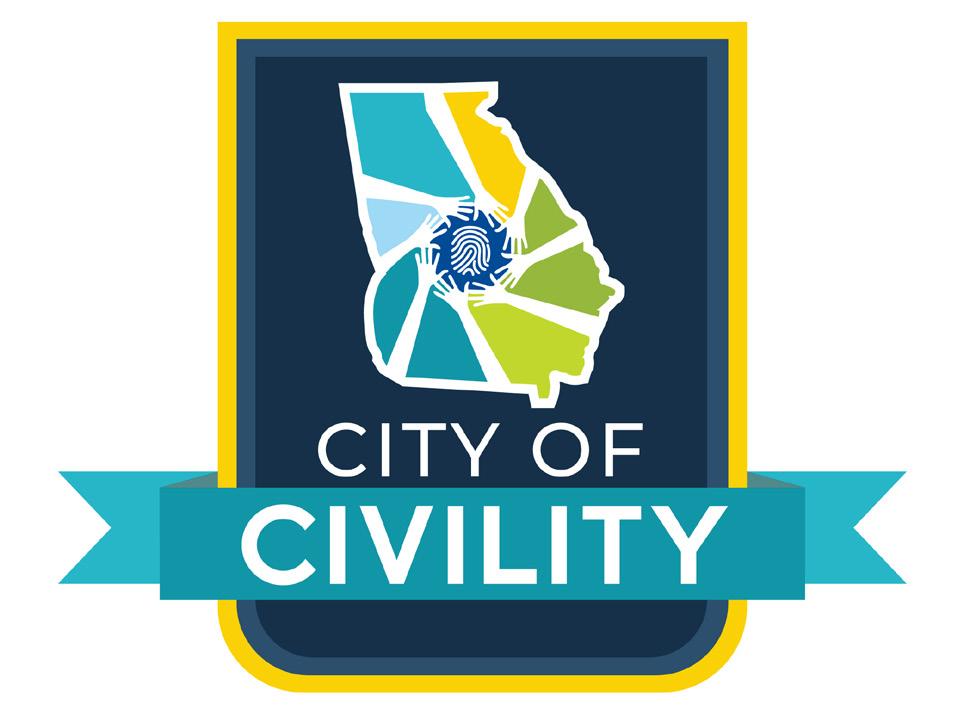
“
Civility fosters respect, trust, and belonging. By modeling and practicing civility, city leaders set an expectation that vigorous debate and vetting of ideas can be respectful and productive, leading to better engagement and outcomes for all.
” March/April 2023 | gacities.com 27
LARRY HANSON, GMA CEO & EXECUTIVE DIRECTOR
PLEDGE TO BECOME A CITY OF CIVILITY!
• Download the model resolution on GMA website.
• Adopt the resolution at a council meeting.
• Email a scanned and signed copy of the resolution to gcs@gacities.com.
CONGRATULATIONS!
The following cities have obtained the City of Civility designation as of March 20, 2023.
Adel
Barnesville
Brunswick
Butler
Byron
Canton
College Park
Cornelia
Covington
Dallas
Decatur
Demorest
Dillard
Duluth
Dunwoody
East Point
Folkston
Franklin
Good Hope
Hapeville
Hiawassee
Hiram
Jackson
Lovejoy
McDonough
McRae-Helena
Peachtree Corners
Perry
Pine Mountain
Port Wentworth
Quitman
Savannah
Statesboro
Stockbridge
Tifton
Union City
Warner Robins
Watkinsville
Waverly Hall
Young Harris
FAQ
What occurs after an email is sent to Georgia City Solutions with a resolution?
Staff will review the resolution to ensure no significant modifications were made from the sample resolution. After the resolution is approved, the city will receive an official notification email, a model press release, and a digital logo from Credly that can be used on the city’s social media pages and website.
How often should the resolution be updated?
The resolution is valid for two years from the approval date. After two years, the Council must vote to approve a new resolution at a council meeting.
What happens if a city is designated a “City of Civility” but behaves impolitely?
The designation of “City of Civility” is not governed by GMA. Cities that sign the civility promise and adopt the resolution pledge to one another and their constituents to conduct business responsibly and courteously. The commitment and resolution should remind cities of their dedication to civility if facing challenges that frequently promote incivility.
Please visit www.gacities.com/civility or email gcs@gacities.com for more information about the Embrace Civility program.
28
Spring District Meetings and Listening Sessions

GMA members are invited to attend their community’s Spring District Meeting and Listening Session. These meetings are a great opportunity to provide input on GMA’s legislative policies, learn about resources for cities, and network with local officials and GMA staff. Visit www.gacities.com to register for your district meeting today!

MEETINGS BY DISTRICT DATE TIME LOCATION District 1 Tuesday, April 18, 2023 6 – 7:30 p.m. City Hall, 300 W Waugh Str, Dalton GA 30720 District 2 Monday, April 17, 2023 11:30 a.m. – 1 p.m. Library, 56 Mechanicsville Rd, Dahlonega GA 30533 District 3 Tuesday, April 18, 2023 11:30 a.m. – 1 p.m. GMA Headquarters, 201 Pryor St. SW, Atlanta, GA 30303 District 4 Wednesday April 19, 2023 11:30 a.m. – 1 p.m. Freeman Sasser Building, 423 Seavy Street Senoia, Georgia 30276 District 5 Wednesday, April 19, 2023 6 – 7:30 p.m. (The Wayfarer Music Hall), 123 N. Lumpkin Street., Monroe, GA 30655 District 6 Thursday, April 20, 2023 6 – 7:30 p.m. Forsyth City Hall, 28 E Main St Forsyth, GA 31029 District 7 Thursday, April 20, 2023 11:30 a.m. – 1 p.m. (The Depot), 111 Railroad Street, Thomson, GA 30824 District 8 Wednesday, April 12, 2023 6 – 7:30 p.m. Economic Dev Ctr, 409 Elm Street, Americus, GA, 31709 District 9 Tuesday, April 11, 2023 6 – 7:30 p.m. Municipal Golf Course, 274 Uvalda Hwy, Hazelhurst, GA 31539 District 10 Wednesday, April 12, 2023 11:30 a.m. – 1 p.m. Community Center, 170 Rose Drive Blakely, GA District 11 Tuesday, April 11, 2023 11:30 a.m. – 1 p.m. Grand Theatre, 119 S Main Street Fitzgerald, GA District 12 Monday, April 17, 2023 11:30 a.m. – 1 p.m. Performing Arts Center, 2140 E Oglethorpe Hwy Flemington GA 31313
In Deep Water
BY CITY OF WINDER
How Winder is Protecting Water and Infrastructure for Its Residents

SITUATED 60 MILES NORTHEAST OF ATLANTA, formed from the intersecting land of Gwinnett, Jackson, Clarke, Oconee, and Walton Counties, bustles the energetic City of Winder, a full-service City providing infrastructure and services to its almost 20,000 municipal residents and water to 51,000 people, including nearly two thirds of unincorporated Barrow County.
Winder’s handling of the current Service Delivery litigation with Barrow County has put Winder at the
forefront of municipalities that are providing infrastructure to serve constituents and customers’ needs while proactively working to protect rate payers and taxpayers from funding inequities.
Formed in 1893, Winder has been providing road maintenance since its founding and since 1920, has been legally serving unincorporated residents with water.
30
Water
The City’s water business started in 1908 and began serving water outside of its municipal boundaries in 1920. Many of the forward-thinking decisions from the 1950s are the foundational seeds on which the City and the County are now reaping the benefits. Nearly 72% of unincorporated retail and industrial developments are served by Winder water. City water territory was respected until 2018 when the Service Delivery Strategy Act required updated territory maps be submitted to the Department of Community Affairs. Barrow County refused to recognize Winder’s historical territory, seeking instead to provide water anywhere in the unincorporated area – including areas already served by Winder water infrastructure.
Barrow County filed suit against the Winder water utility and Winder is currently seeking appeal to the Georgia Supreme Court over both roads and water.
The Water Utility Service dispute boils down to the following:
• Barrow County says water rate differentials charged by Winder to customers located outside Winder city limits are arbitrary.
• Utility fees charged to unincorporated area customers constitute illegal taxation.
• Barrow County contends that it has the legal right to provide utility services in the unincorporated areas of the County despite historically recognized territories and multiple millions of dollars in existing City infrastructure.
Winder’s catalyst water and sewer projects that span throughout the unincorporated areas have armed Winder as a formidable opponent when it comes to economic development.
City elected officials contend Barrow County’s current expansion efforts into the water business-encroachments-are causing cognizable injury to the residents, as the County government is failing to do its public duty of following the law.
Working to engage taxpayers, ratepayers, and voters, Winder recently launched a robust water education campaign calling constituents to start conversations with County-elected officials.
In the book, Water Clarifying the Issues, City staff present the facts about the County’s EPD permit, enabling legislation, and funding by taxpayer subsidies.
The publication also dives into the planned water investments by the Barrow County Water and Sewerage Authority, which will be funded through SPLOST dollars.
According to Winder officials the debt incurred for these expansions will further the inequities as the costs will be shouldered by City and unincorporated residents.

March/April 2023 | gacities.com 31
Spending SPLOST dollars on projects that do not benefit the entire community ignites the city’s second issue with tax inequity for citizens, transportation funding.
Roads
The City of Winder grew in population by 30.06 percent according to the 2020 census and is positioned for exponential growth over the next decade. Addressing the aging infrastructure is vitally important to support continued growth.

Many counties fund road maintenance strictly in the unincorporated area, but they do so using tax dollars from their incorporated residents.
City residents also fund road maintenance for both City and County roads that are located within their City limits.
This practice results in a funding inequity to City taxpayers.
• City property owners are paying for road maintenance services throughout the County.
• Unincorporated area property owners are funding road maintenance only in the unincorporated area.
Working to engage taxpayers, ratepayers, and voters, Winder recently launched a robust water education campaign calling constituents to start conversations with County-elected officials.
Winder argues that Georgia law (OCGA 36-7024(3)(A) protects City taxpayers from this inequity and requires that the county fund unincorporated road maintenance solely from unincorporated tax dollars, saving City taxpayers millions of dollars.

Winder’s elected officials will continue exhausting all efforts, grateful for the support provided through GMA’s legal defense fund. As a benefactor of these resources, Winder has been able to continue the work to protect City and County residents against these tax inequities.
Winston Churchill famously said, “I no longer listen to what people say, I just watch what they do, behavior never lies.” GMA’s willingness to stand with the City of Winder has served as a reminder to Mayor and Council to not quit.
What will hopefully create a change in posture from the County, the City’s Mayor and Council are determined to keep educating local leaders, business owners, and constituents hoping to gain support from the opinions of the majority, who can call for accountability and facilitate a meaningful change.
Join Georgia City Solutions for the Inaugural Community Impact Awards Event on May 18

Georgia City Solutions (GCS), the Georgia Municipal Association’s non-profit, will hold its inaugural Community Impact Awards event at the Porsche Experience Center in Atlanta.
THE EVENT WILL SHOWCASE THE IMPACTFUL and innovative work GCS is doing to help Georgia cities thrive and provide all residents with opportunities to reach their full potential. To shine a spotlight on these efforts, the program will honor and celebrate those that have made a positive impact in communities around the state.
There will be award presentations in three categories:
Individual - Dr. Annise Mabry for her work in the area of workforce development, youth engagement and DEI in rural Georgia.
Organization - Creature Comforts Brewing Co. for the Get Comfortable Initiative to improve the percentage of Athens-Clarke County 3rd graders reading on grade level from 20%—where it sits today—to 60%.
Cities:
Dublin for their work in youth leadership and engagement and workforce development.
Lawrenceville for their work in DEI, and youth leadership and engagement.
Valdosta for their work in youth leadership and engagement, and workforce development through the Great Promise Partnership program.
Proceeds raised from the inaugural Community Impact Awards event will allow GCS to enhance and expand its programs to even more cities across Georgia in the areas of Equity and Inclusion, Municipal Workforce Development, Youth Leadership and Engagement, as well as Literacy which underpins each of these areas.
Ambassador Andrew Young will serve as Honorary Chair. To build support for the event, a Host Committee composed of business and civic leaders, as well as the three municipal officials on the GCS Board, has been formed. In addition to a strong Host Committee, an Honorary Mayors Host Committee has been created to demonstrate statewide support from city leaders for the mission of Georgia City Solutions.
We are grateful to the following mayors serving on the Honorary Mayors Host Committee:
Mayor Betty Cason, Carrollton
Mayor Andre Dickens, Atlanta
Mayor Jay Flowers, Thomasville
Mayor Kelly Girtz, Athens-Clarke
Mayor Skip Henderson, Columbus
Mayor Van R. Johnson II, Savannah
34
Mayor Jonathan McCollar, Statesboro
Mayor Lester Miller, Macon-Bibb County
Mayor Bianca Motley Broom, College Park
Mayor Rusty Paul, Sandy Springs
Mayor Fred Perriman, Madison
Mayor Julie Smith, Tifton
Mayor Sundai Stevenson, Rome
Mayor Randall Walker, Perry
Mayor Vince Williams, Union City
The interactive event will start with a reception, Porsche ride along experience and silent auction, followed by a seated dinner program emceed by Donna Lowry of Georgia Public Broadcasting.

For sponsorship and ticket information, please visit the GCS website at gacitysolutions.org/events



March/April 2023 | gacities.com 35
Creating Jobs With Purpose

Municipal Workforce Pilot Program Launches with Cities of Brunswick and Douglas
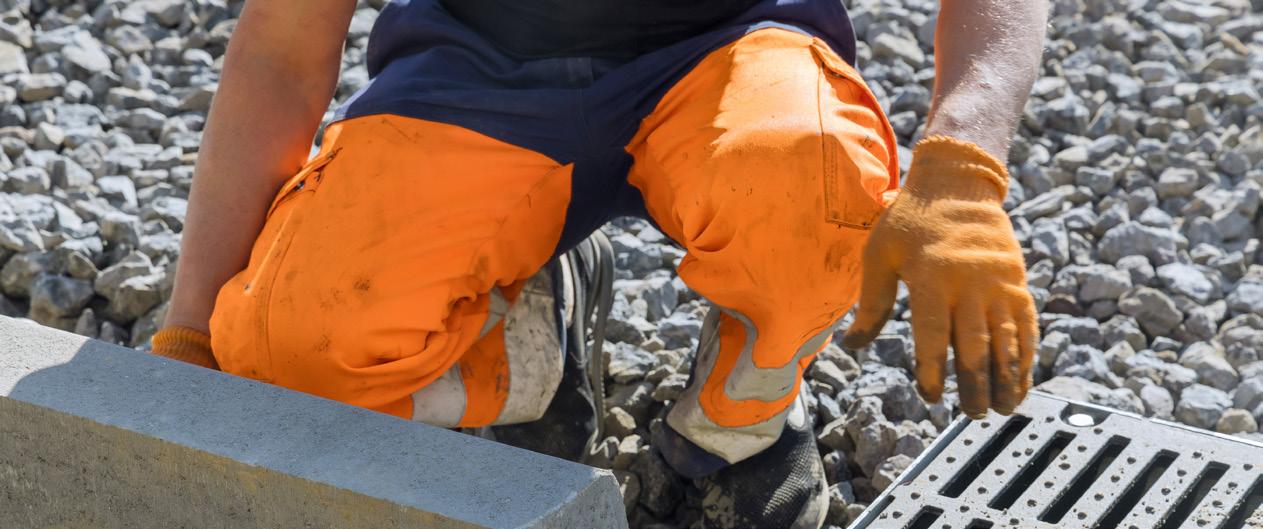
THE CITIES OF BRUNSWICK AND DOUGLAS ARE taking a hard look at their workforce needs thanks to a $40,000 grant Georgia City Solutions (GCS) received from the Volcker Alliance. The project is part of the Jobs With Purpose: Municipal Workforce Development Initiative (JWP), a joint effort of the Georgia Municipal Association (GMA) and Georgia City Solutions (GCS), that is designed to proactively address the workforce needs of cities through investment, planning, and strategy implementation. The grant will be used to help each city develop a workforce needs assessment and a job recruitment strategy specific to each city.
The grant from the Volcker Alliance is part of its strategy to support innovative pilot programs to connect job seekers to government jobs.
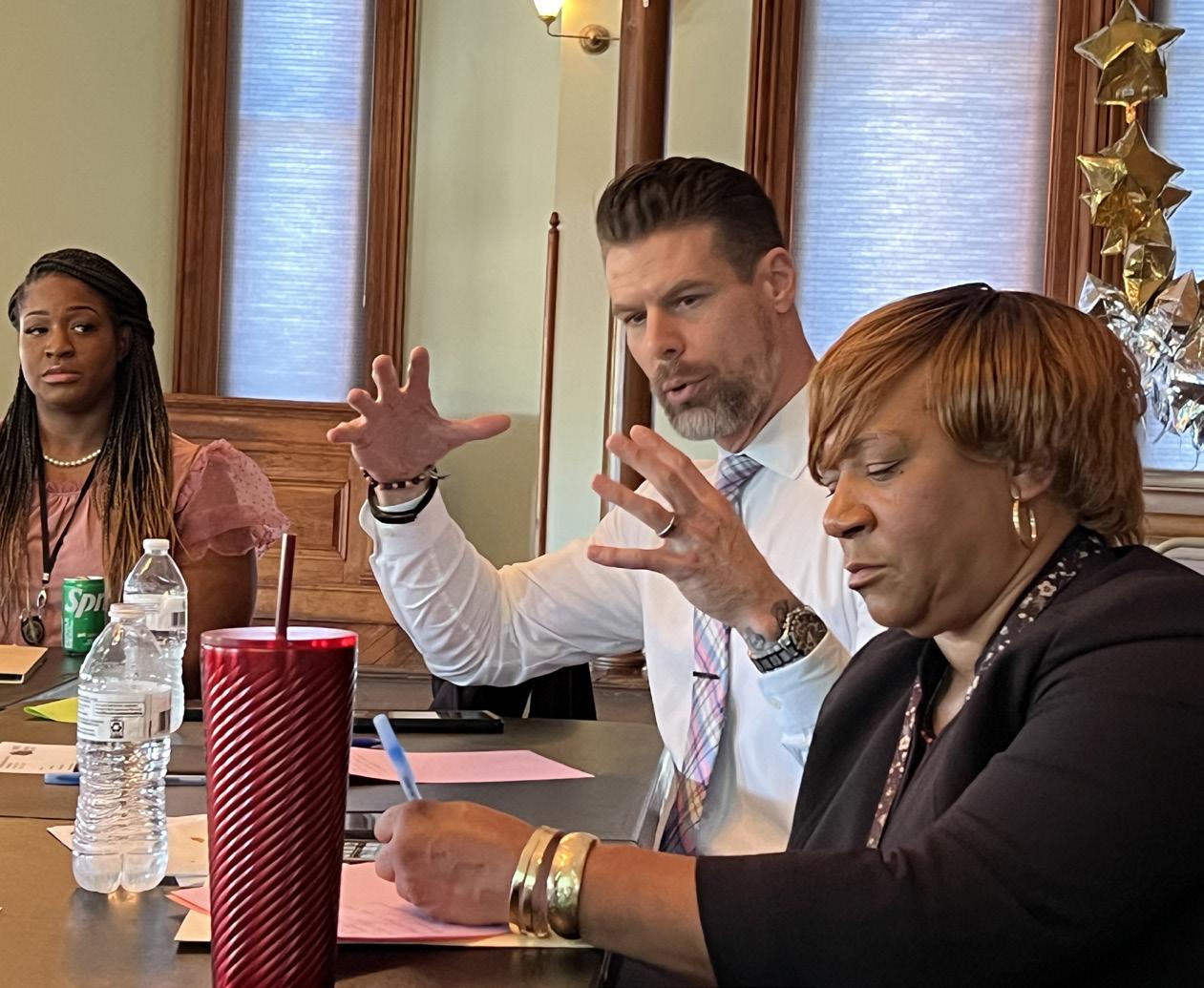
Brian Wallace, GMA’s director of strategic initiatives, expressed his gratitude for the grant, saying that it came at the perfect time for implementing some of the recommended strategies in the Georgia Municipal Workforce Development Strategy and Playbook, which was unveiled in the summer of 2022. “The timing was absolutely perfect for us as it allowed us to move from strategy development to strategy implementation,” he said.
The pilot project is currently in its first phase, with staff from the Carl Vinson Institute of Government (CVIOG) facilitating two all-day sessions with a work team in each city. Each team is reviewing key workforce data, discussing workforce challenges in their city, and developing strategies to address those challenges.
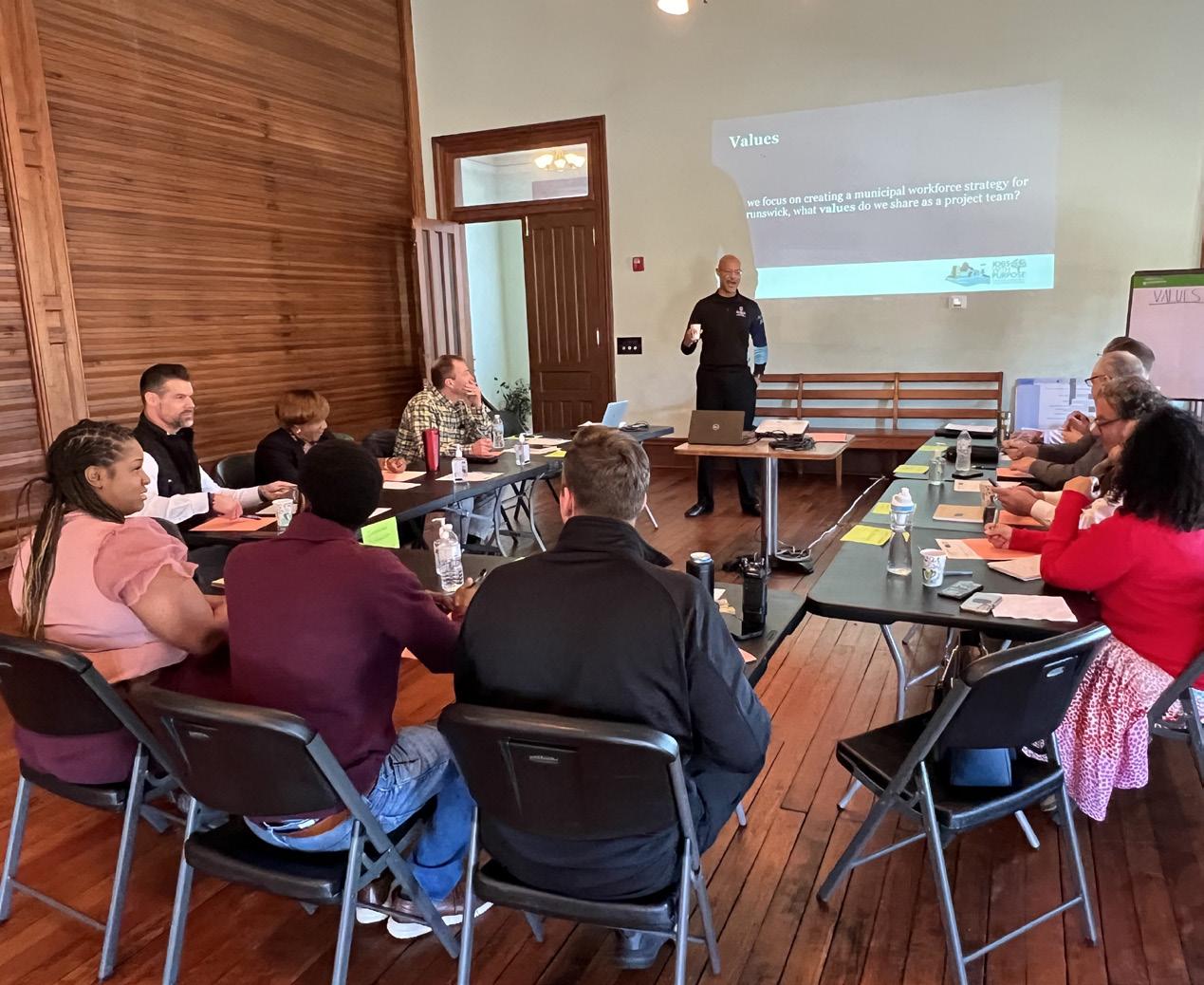
36
Wallace praised both cities’ work teams, saying that they are invested in the work and understand its importance to the provision of services to the community.

The second phase of the pilot project will focus on each city developing a recruitment strategy based on GMA’s Starts With Me! job recruitment resources, with Mopdog Creative + Strategy providing assistance to both teams. Kennesaw-based Mopdog developed the Starts With Me! resources and will help both cities develop appropriate messaging and collateral resources to attract and retain qualified job applicants for city positions.
“Mopdog has been a great partner in our workforce efforts over the last few years,” said Wallace. “They’ve taken a lot of interest in this work and are committed to helping cities tell the story of how city jobs are great jobs to have.”
GCS has received an additional $155,000 from grants provided by the Truist Foundation and Georgia Power to expand this work across the state. The six cities are Americus, Cordele, Griffin, Jackson, Rockmart and Thomasville. The expansion will include a cohort of six cities, divided into two groups, with the work starting in the spring and summer.

GCS Managing Director Kay Love is excited about expanding the JWP footprint across the state. “GCS is pleased and excited that we will be able to expand this important work to an additional six cities.” She added, “I’ve spent my professional life in public service at the local level. I know how important it is for cities to find the right kind of person to fill these jobs and the challenges they face with changing job expectations, looming baby boomer retirements, and competition from the private sector.”
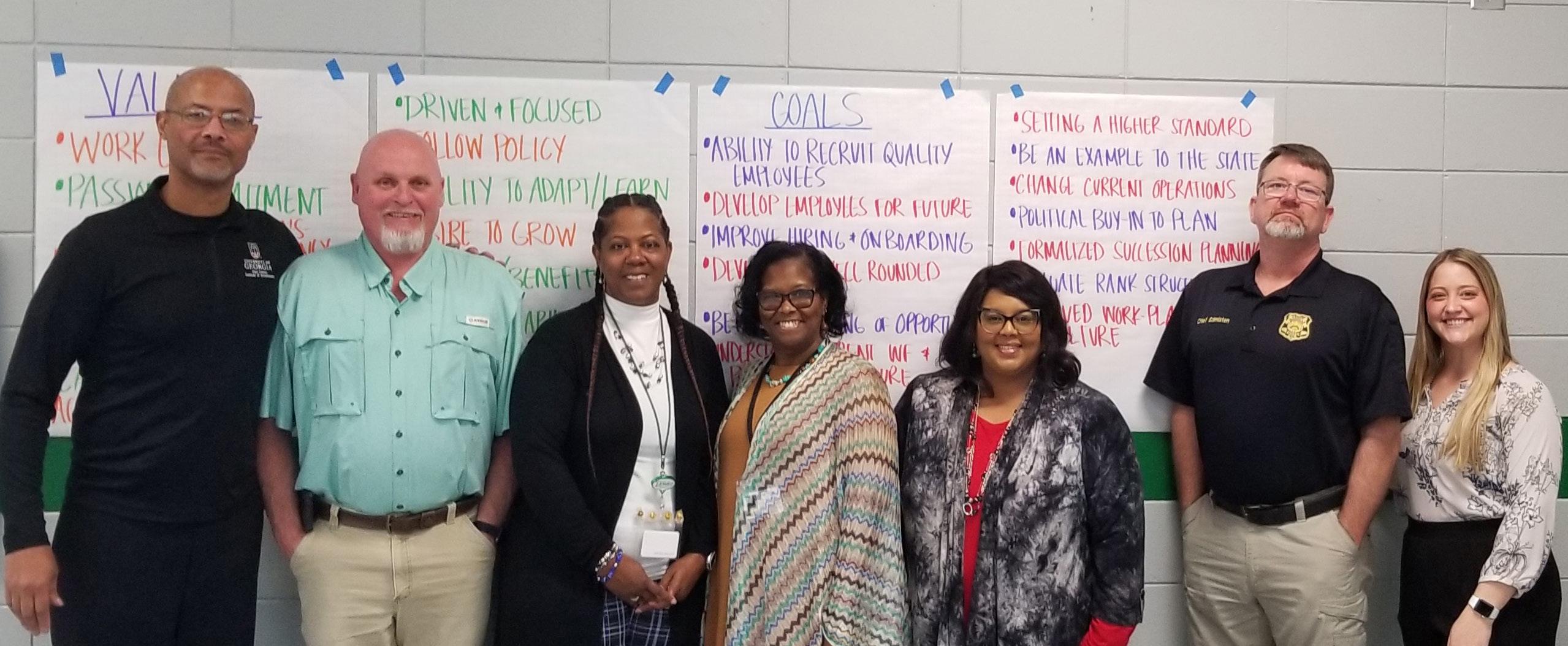
March/April 2023 | gacities.com 37
Representatives from the City of Brunswick and the City of Douglas met recently with CVIOG facilitators to work on municipal workforce development plans.
New Lawsuits Argue Municipal Utility Fees Constitute Illegal Tax
BY KEVIN JESELNIK, ASSISTANT GENERAL COUNSEL
CITIES ACROSS GEORGIA PROVIDE A VARIETY OF essential services to residents. When the amount of revenue collected exceeds the cost of services provided, cities may use a portion of the revenue as general revenue funds. However, that practice is now being called into question, and municipal leaders are encouraged to take note.

Two lawsuits wending their way through Georgia courts may impact municipalities’ ability to use revenue collected from providing water service for general revenue purposes. In City of Winder v. Barrow Cty., Winder is appealing a ruling that the city’s water usage fees are actually a tax. The Superior Court decision declared
Winder’s water charge to be an “illegal tax” because its revenue was being used for general revenue purposes. The decision was upheld by the Court of Appeals. The broader questions in that case concern the Service Delivery Strategy Act. The Act does not address how revenue from water use charges must be used, nor does it prohibit use of this revenue for general revenue purposes. Notably, the Act does provide a mechanism by which counties can dispute the reasonableness of water and sewer rates, but does not permit counties to challenge the use of the revenues by a municipality as an “illegal tax.”
TOWNS & THE LAW
Two active cases could curtail Georgia cities’ right to use revenue from provision of utility services for general revenue purposes.
38
The City of Winder is challenging the rulings of the Superior Court and Court of Appeals, and has filed a petition for review that is now pending before the Georgia Supreme Court.
In Mason’s World Bar and Grill LLC et al. v. City of LaGrange, Georgia, et al., filed in January in Troup County Superior Court, attorneys for a putative class of plaintiffs have similarly claimed that the city’s water, sewer, gas and electric fees are excessive and constitute illegal taxes. The underlying facts in the two cases are similar inasmuch as the municipalities provide services to their residents, collect fees for said services, and direct some portion of that revenue to the city’s general revenue fund.
collected since 1998. Counsel for plaintiffs suggested that recourse should include a refund of the alleged excessive taxes collected and the re-imposition of property taxes on all municipal residents.
Two lawsuits wending their way through Georgia courts may impact municipalities ability to use revenue collected from providing water service for general revenue purposes.

Historically, water fees are not taxes because people choose to utilize water service and purchase only that which they need. In another recent case, Bellsouth Telecommunications, LLC v. Cobb Cty., the Georgia Supreme Court distinguished between taxes and fees for services, holding that “fees are a charge for a particular service provided, based on the payer’s contribution to the problem.”
In Mason’s World Bar and Grill, the plaintiffs’ counsel argued that the fees were illegal taxes in part because the fees were used for general revenue purposes in lieu of property taxes, which LaGrange had not
This question, now raised in relation to fees collected by two municipalities, seems likely to be heard by the high court through one case or the other. Based on the answer provided, there may be further litigation concerning how Georgia municipalities utilize the revenue earned from municipal services.
March/April 2023 | gacities.com 39
Georgia’s Cities Were Represented at the Nations Capitol in a Recent GMA Fly-In
GMA’S FEDERAL POLICY COUNCIL CHAIR
Fred Perriman, Mayor of Madison and GMA Immediate Past President Vince Williams, Mayor of Union City, took part in a GMA fly-in to Washington, DC. During those visits, the Mayors first received a legislative update from the National League of Cities Federal Advocacy and Grassroots Advocacy teams, followed by Hill meetings with Senator Warnock and the staff of
Senator Ossoff, as well as visits to the staff of all 14 U.S. House members representing Georgia. The team also met with officials from the White House Office of Intergovernmental Affairs and the Office of Clean Energy, Innovation, and Implementation to receive an update on ARPA, BIL, CHIPs Act, FCC broadband maps, and the Inflation Reduction Act. During each meeting, Mayor Perriman and Mayor Williams provided important feedback and stories showing how communities are investing federal funds to meet local challenges and provide a better quality of life for residents.
GMA’s Federal Policy Council Chair Fred Perriman, Mayor of Madison and GMA Immediate Past President Vince Williams, Mayor of Union City met with Senator Raphael Warnock and the White House Office of Intergovernmental Affairs during a recent visit to Washington, DC.

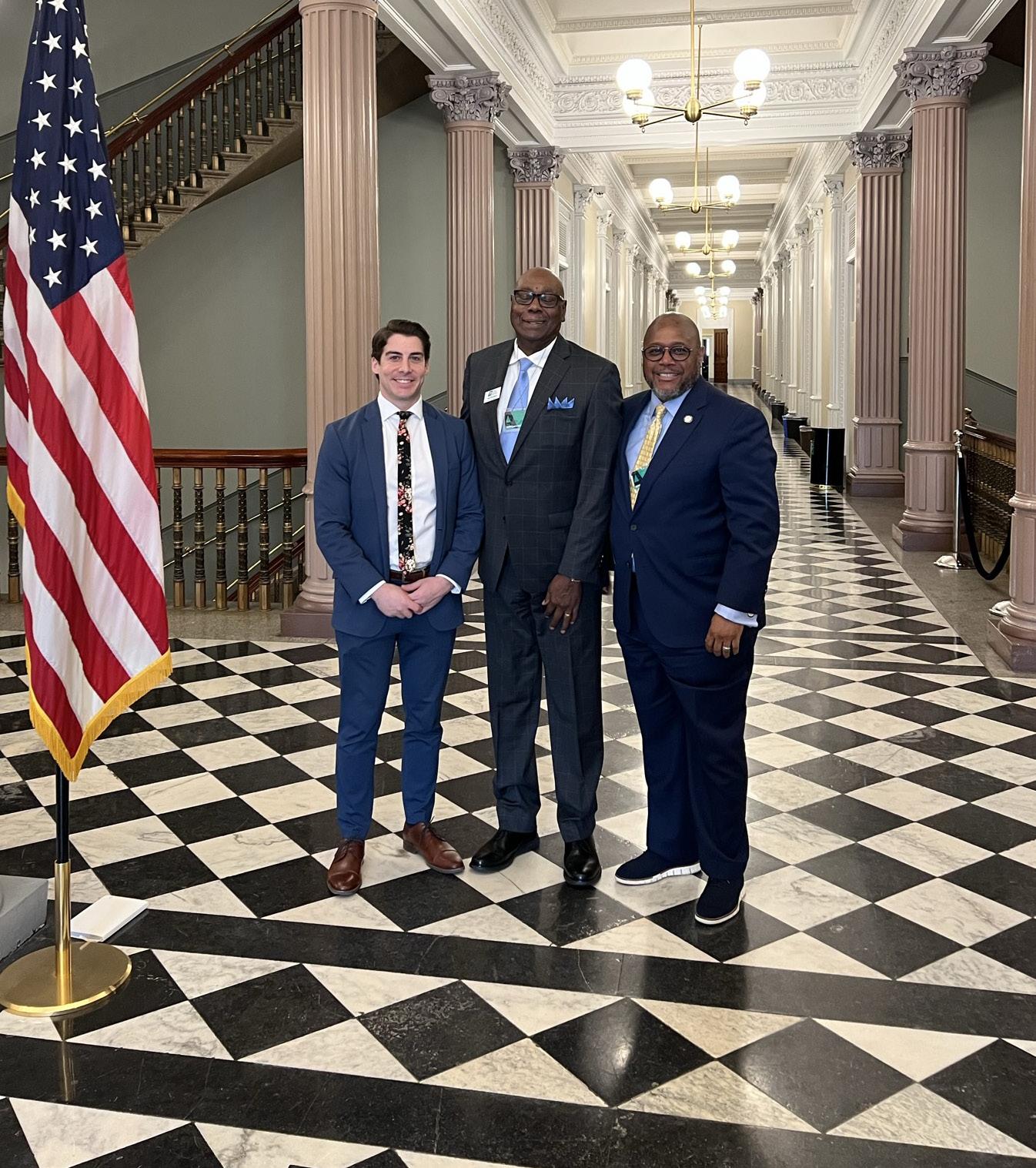
FEDERAL FOCUS
40
Georgia’s Cities Celebrate ARPA Two Year Anniversary
MARCH 11, 2023, MARKED THE TWO YEAR
anniversary of President Biden signing the American Rescue Plan Act into law. These ARPA funds have been so important to cities around Georgia, both the Coronavirus State and Local Fiscal Recovery Funds (SLFRF) funds sent directly to cities as well as the competitive funds made available through the State of Georgia. Cities are encouraged to promote how your city has used ARPA funds on social media. Sending federal funds directly to cities is the most efficient and effective way to have an immediate impact on residents and businesses and local leaders know better than anyone how to invest in communities.
their funds included supporting organizations and business impacted by COVID-19, purchasing life-saving equipment for the fire department, upgrading the computers in the Bogart Library, and more.
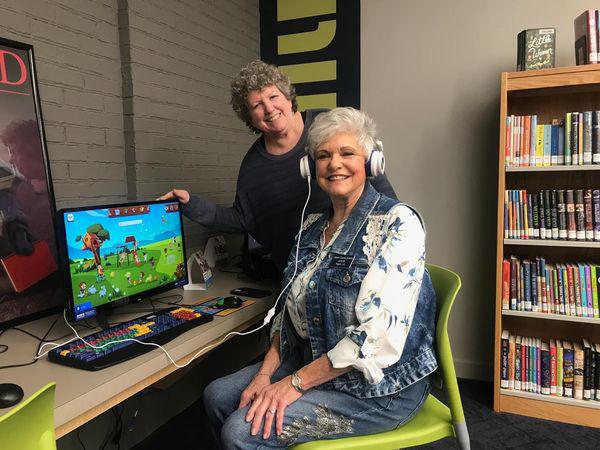
The City of Bogart maximized the use of their ARPA funds to serve residents. Some ways they used
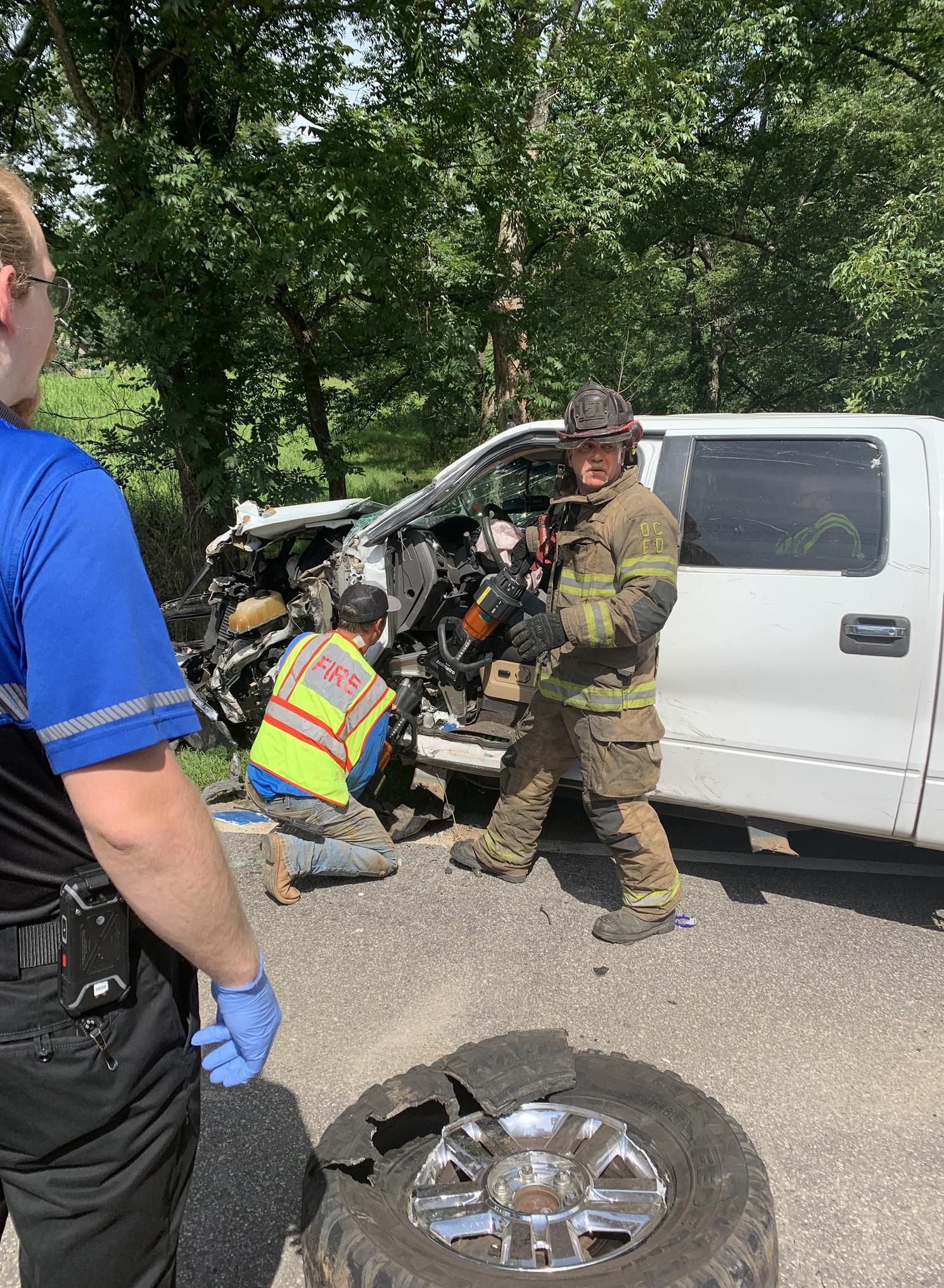
March/April 2023 | gacities.com 41
DOWNTOWN DEVELOPMENTS MORE THAN MURALS WORKSHOP FOCUSES ON CREATIVE PLACEMAKING
On February 22-24, Georgia Council for the Arts (GCA), Georgia Municipal Association (GMA), the City of Thomasville and Thomasville Center for the Arts came together to present an intensive workshop focused on creative placemaking and public art.
WHAT IS CREATIVE PLACEMAKING? CREATIVE
placemaking is a process where community members, artists, arts and culture organizations, community developers, and other stakeholders use arts and cultural strategies to implement community-led change.
Twelve cities across Georgia explored the creative placemaking initiatives of Thomasville, as each city brought teams of three representatives including a representative from an arts organization, or artist in their community; a member of the city council, or city

42
manager; and a downtown program manager or tourism professional to Thomasville to participate in a crash course in creative placemaking and public art, addressing community challenges to encourage economic growth. The following twelve cities went through an application process to be chosen to participate: Cairo, Canton, Doraville, Griffin, Homerville, Milledgeville, Monroe, Sugar Hill, Tifton, Valdosta, Vidalia, and Watkinsville.
“Cindy Eidson and I conceived of this workshop because we wanted city officials in communities to sit down with local artists, develop relationships, and understand how artists and arts organizations can be an important tool to addressing community challenges,” said Tina Lilly, Executive Director of GCA.
Thomasville Center for the Arts has been pushing creativity with outstanding and interactive public art experiences for more than a decade. “It is quite a compliment that the collaboration between Thomasville Center for the Arts and the City of Thomasville is being used as a model for educating Georgia cities on creative placemaking,” said Darlene Crosby Taylor, Thomasville Center for the Arts Public Arts Director.

Thomasville pulled out all the stops for participants on day one, opening with a lively panel discussion with city leaders and arts organizers who are driving the public art and placemaking efforts.
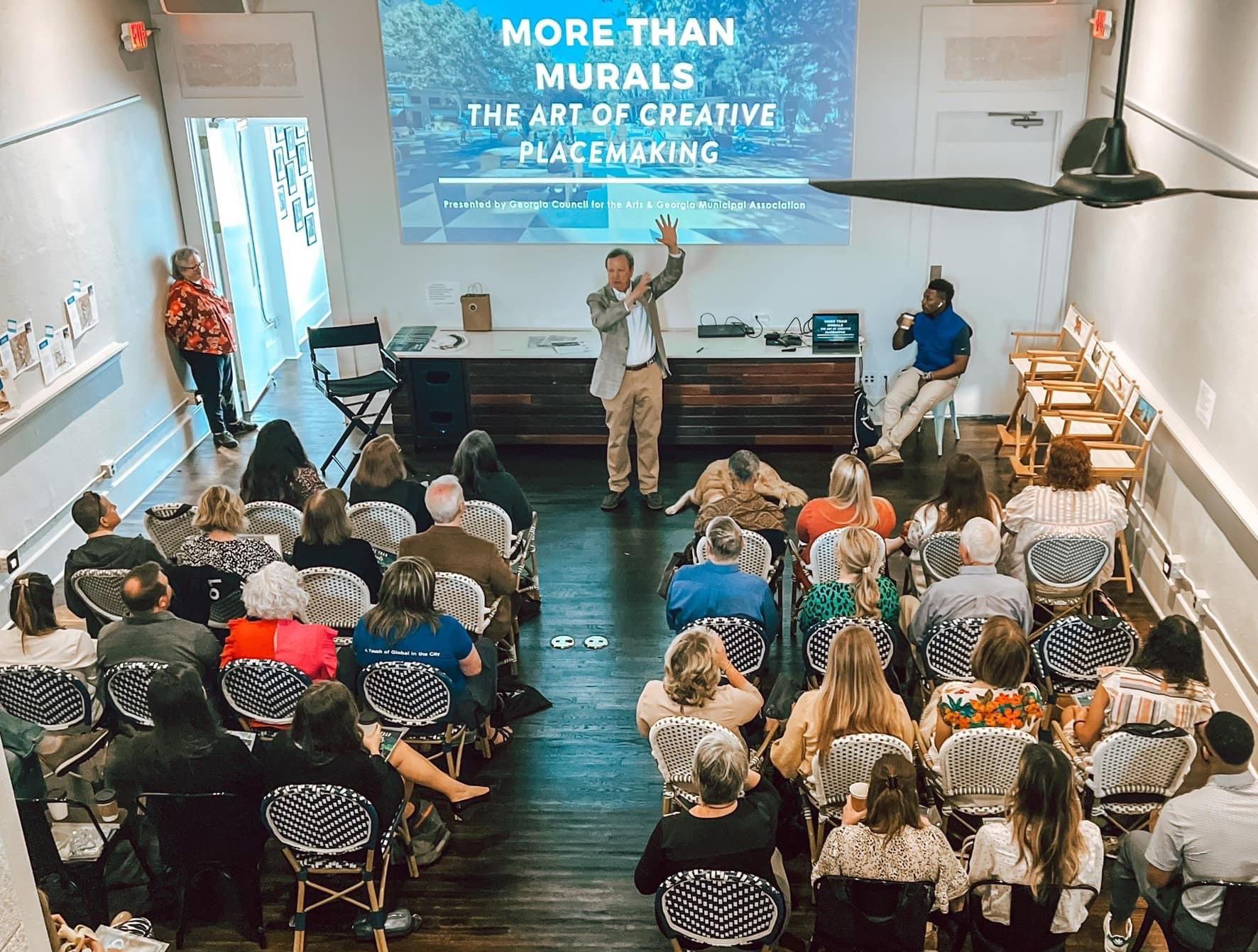
Thomasville Center for the Arts’ Executive Director, Michele Arwood, kicked off the panel with a
conversation focusing on the community’s collaborative approach to project design. “While Thomasville has a long history of leveraging public art to strengthen our community identity, we began our work in earnest only a decade ago with clear, shared goals to creatively connect the people who live, work and play here; as well as increase cross-cultural understanding, advance tourism, and ultimately undergird a strong future for our community.”
Arwood shared a snapshot of Thomasville’s creative placemaking in recent years zooming in on the design of The Bottom Creative District and the subsequent development of a vacant lot which serves as the gateway to The Ritz Amphitheater that anchors the district. The City of Thomasville worked alongside Thomasville Center for the Arts and Thomasville Landmarks to involve the community in discovery walks, design charettes, roundtable discussions and other community-wide engagement experiences to bring forth a vision and plan for the district that all could be proud of – by honoring history and developing a unique character for the area that will enhance quality of life for generations to come.
“Since the establishment of the Creative District Vision Plan in 2014, Downtown Thomasville has seen over $15 million dollars in public and private investment. Main Street took the responsibility for activating the district’s Ritz Amphitheater and recruiting business to the area, along with completing a full streetscape. This area alone has now seen a net of over 40 businesses open, in
turn creating over 230 jobs and connecting downtown streets to surrounding neighborhoods - all while celebrating our culture, arts and history. It’s a true testament to the power of creative placemaking,” said April Norton, City of Thomasville Managing Director of Marketing & Communications.
In addition to Arwood, the panel included Mayor Jay Flowers, City Planner Kenny Thompson, and Public Art Director Darlene Crosby Taylor. Mayor Flowers shared his perspective on the critical role public art has played in the cultural vitality of the city. Thompson detailed the planning department’s role in developing new projects. Thompson reflected on how the city’s placemaking efforts influenced his decision to move his family to the community. Another highlight of the panel discussion was the evolution of Thomasville Center for the Arts’ Flaunt event, a bi-annual, multi-disciplinary public art experience designed to bring inspiring, largescale art to the streets. Taylor detailed the formula for creating each themed event and the unique collaborative approach with Main Street, the Center, and local business partnering to create compelling experiences.
Flaunt: Let’s Play!, featured a 6-week public art installation designed to promote and encourage the art of play through larger-than-life monopoly-inspired art. In addition to the public art, the Center created a THOMopoly game with support from more than 70 local sponsors and program partners.
Wrapping up the session was a guided walking tour of downtown public art installations where participants learned more about logistics and how they too might create similar projects.
“The More Than Murals Workshop was a profound experience for our organization. Pulling together collaborations between arts organizations, cities, and tourism made the experience even more impactful. We left with an actionable plan to take back to our community and we will start making changes right away,” said Joy Yost, workshop participant and Executive Director, Tifton Council for the Arts and The Syd Blackmarr Arts Center.
Erin Wessling and W Projects of Savannah organized the remainder of the workshop, bringing speakers from across the state to present both small and large examples of the impact of creative placemaking in cities such as Newnan, Suwanee, Savannah, and Atlanta.
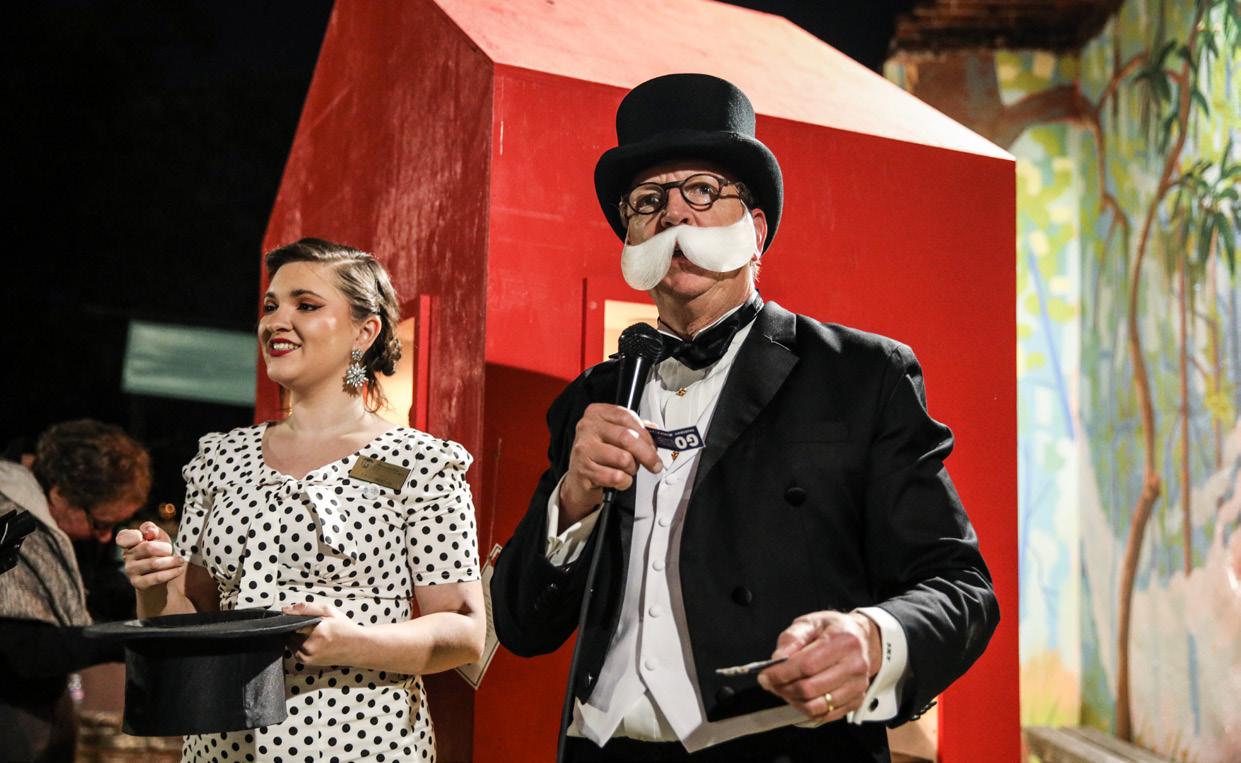

Following the workshop, each city will continue to work on their arts-focused strategy to activate a space within their own city by using the placemaking principles and concepts provided throughout the workshop. Mentors will continue to serve as a resource to each participating city in the execution of these projects within their communities. The Georgia Council for the Arts is supporting creative placemaking projects in each participating city by offering each an $8,000 grant. “We are pleased to be able to support arts projects in each of these communities, “ said Lilly. “These grants can be used to revitalize parks, build festivals to attract tourists, support arts education projects, or commission public art that brings communities together.”
“Creative placemaking strategies through the arts can be a catalyst to growing and transforming communities,” said GMA’s Community and Economic Development Managing Director Cindy Eidson. “I’m challenging city leaders to ask themselves, ‘How can our city engage the arts in activating spaces downtown?’”
44
GEORGIA GEMS
HIGH FALLS STATE PARK: EXPERIENCE HISTORIC NOSTALGIA, YURTS, AND WATERFALLS SOUTH OF ATLANTA AT HIGH FALLS STATE PARK
IF YOU ARE LOOKING FOR A PLACE TO ESCAPE from your day-to-day, and grab some fresh air, High Falls State Park awaits you. Located near the city of Jackson in Monroe County, this 1,050-acre state park named for its 135-foot tumbling and cascading waterfall located on the Towaliga River has been dubbed as the tallest cascading waterfall south of Atlanta in the state.
Outdoor enthusiasts, wanderers, and adventurists alike will marvel at the park’s recreational activities offered such as boating, fishing, hiking, miniature golf, paddling, and picnicking. Boat rentals, ramps, and fishing docks provide easy access to the park’s lake, which has been known as one of the state’s top fishing locations.
For visitors looking to stay overnight, the park provides various accommodations for every traveler such as tents, trailers and RV campsites, and yurts. Lakeside yurts feature a small deck, picnic table, an outside grill, furniture, and electrical outlets.
History lovers will enjoy the nostalgic pastimes
while seeing the park’s rich cultural remnants from the area’s past. The park features about 4.0 miles of trails for visitors to explore. The Falls Trail is a 1.5-mile loop that takes visitors along the shores of High Falls. The Historic Trail is a .5-mile linear trail that takes visitors along the river’s edge through a hilly forest to the remains of a hydroelectric power plant foundation. The Tranquil Trail, a 2.5-mile loop explores a remote forest of the park.
The site of the park was a prosperous industrial town with several stores, a grist mill, a cotton gin, a blacksmith shop, a shoe factory, and a hotel. In the 1880s, the area fell from prosperity when a major railroad bypassed the area.
Because of its location, the park provides easy access and has become a great restful side stop for travelers on Interstate 75.
With Jackson and surrounding areas, including the magnificent High Falls State Park, visitors can enjoy the charm of waterfalls and natural scenery close to home right in middle Georgia.

CITYLITES March/April 2023 | gacities.com 45
Fairs and Festivals
April 11
One Book, One City Powder Springs
April 14
Fernbank After Dark
Atlanta
April 14-15
Georgia Mountain Storytelling Festival
Blairsville
Barnesville BBQ & Blues Festival
Barnesville
Spring Fling and Backyard BBQ Festival


Moultrie
April 14-April 16
87th Annual Atlanta
Dogwood Festival
Atlanta
Vintage Market Days @ Mountain Cove Farms
Chickamauga
Hamilton Gardens
Rhododendron Festival
Hiawassee
April 15
40th National Mayhaw Festival
Colquitt
Acworth Arts Fest 2023
Acworth
2023 Spring Plant Sale
Atlanta
April 15-April 16
Bear on the Square
Mountain Festival
Dahlonega
April 20
DTL Happening
Lawrenceville
April 21
Downtown Perry’s Wine Tasting
Perry
International Night Market
Suwanee
April 21-April 23
Braselton Artisan Festival
Braselton
April 22
Zoo Atlanta Plant Sale
Atlanta
Flowery Branch Spring Festival
Flowery Branch
Georgia Strawberry Festival
Reynolds
Earth Day Festival
Fayetteville
April 22-April 24
Big Shanty Festival
Kennesaw
April 26
Tybee Wine Festival
Tybee Island
April 27
Alpharetta Food Truck Alley
Alpharetta
Taste of Canton
Canton
April 28
Thomasville Rose Show & Festival
Thomasville
Night Market @ Courthouse Square
Dallas
April 29
Johns Creek International Festival
Johns Creek
46
Spring Chicken Run & Festival
Powder Springs
April 29-April 30
Suwanee Arts Festival

Suwanee
Spring Jonquil Festival
Smyrna
April 30
Taste of Marietta
Marietta
May 1
Annual May Day Festival

Arlington
May 5-September 1
First Friday Concert Series
Tucker
May 5
Movies Under the Stars on the Green
Braselton
May 6
Kennesaw Beer & Wine Festival
Kennesaw
Acworth Dragon Boat Festival
Acworth
Free Comic Book Day
Lawrenceville
Toccoa Train Day
Toccoa
Cruzin’ Down Doyle
Toccoa
May 6-May 7
The Cotton Fair Gay
Shady Days in Gay Arts & Crafts Festival Gay
Whaley Fair Gay
May 7
British Car Show
Suwanee
May 12-May 14
Bringing the Sea to the Springs
Powder Springs
May 13
Daylily Festival
Adel
May 13-May 14
Dunwoody Art Festival
Atlanta
May 15
DTL Happening: Light Lawrenceville Blue
Lawrenceville
May 19 LIVE in the DTL
Lawrenceville
May 25
Alpharetta Food Truck Alley

Alpharetta
May 26
Red, White, Bluegrass and Bach Concert
Suwanee
To place a free Fairs & Festival listing contact gacities@gacities.com. Please submit listings at least eight to ten weeks ahead of publication date.
March/April 2023 | gacities.com 47
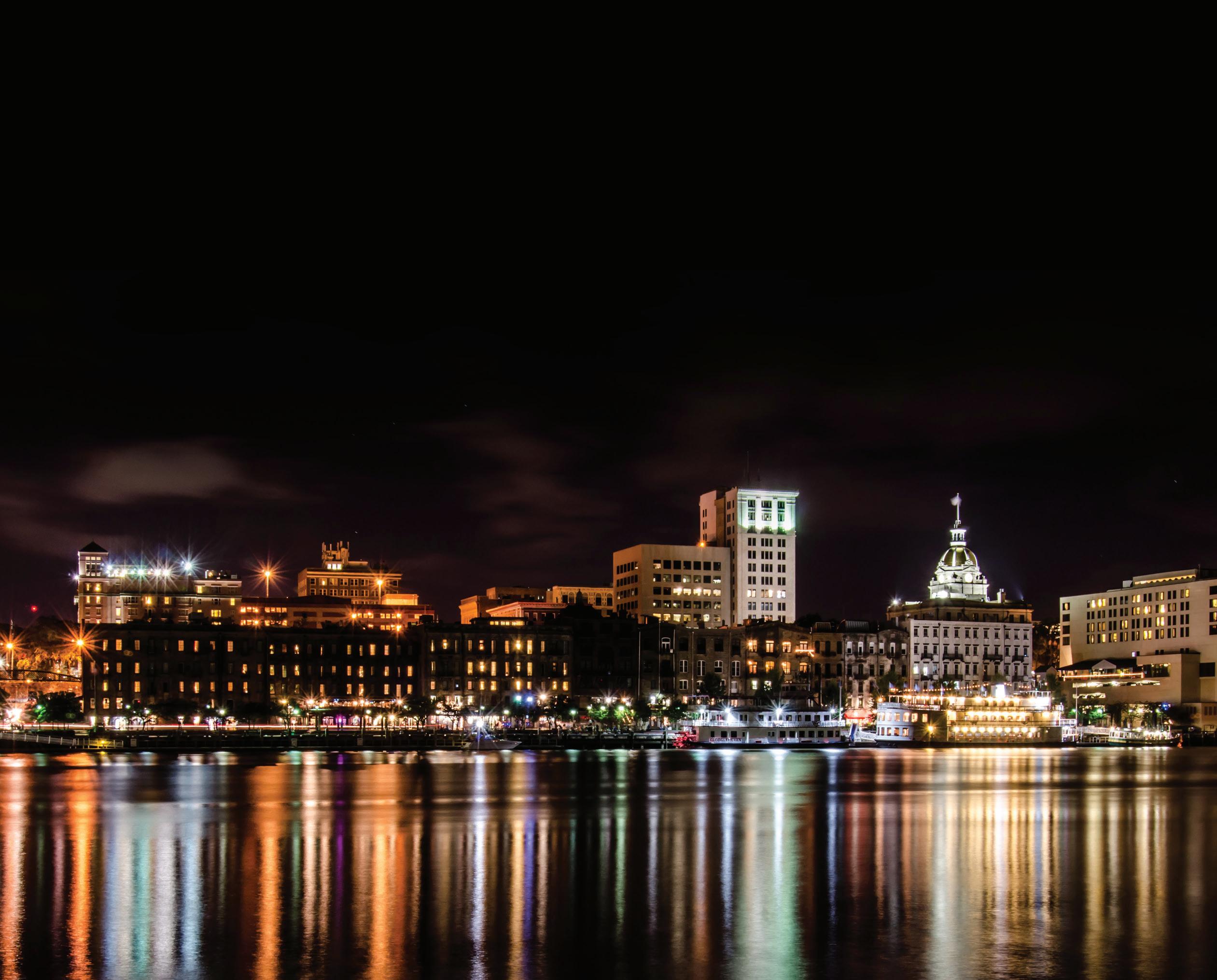
201 Pryor Street, SW Atlanta, Georgia 30303 PRSRT STD U.S. POSTAGE PAID ATLANTA, GA PERMIT NO. 1959 2023 Annual Convention SAVANNAH, GEORGIA JUNE 23 – 27, 2023 REGISTRATION NOW OPEN SAVE THE DATE

























 BY EDITH DAMANN
BY EDITH DAMANN












































































